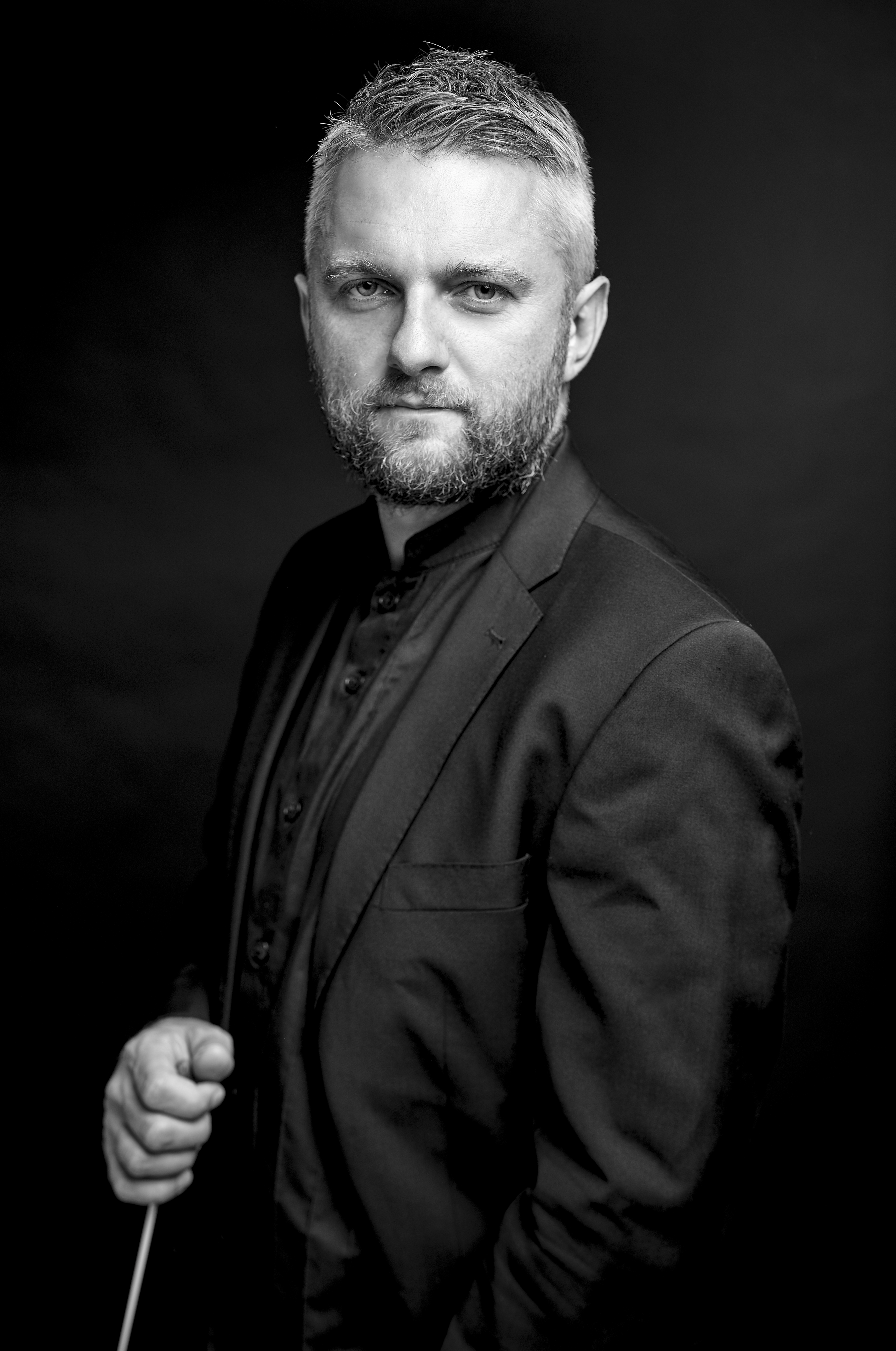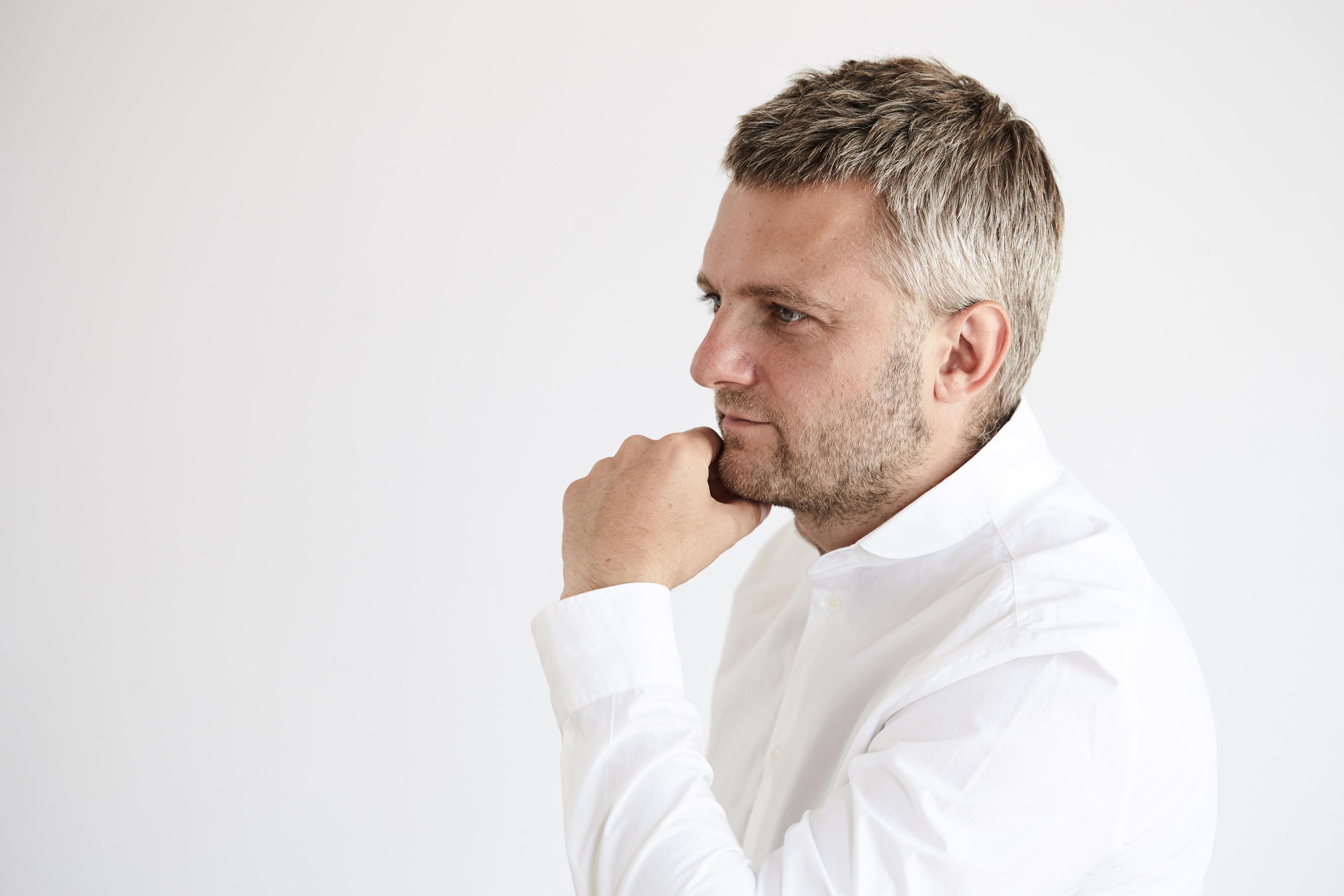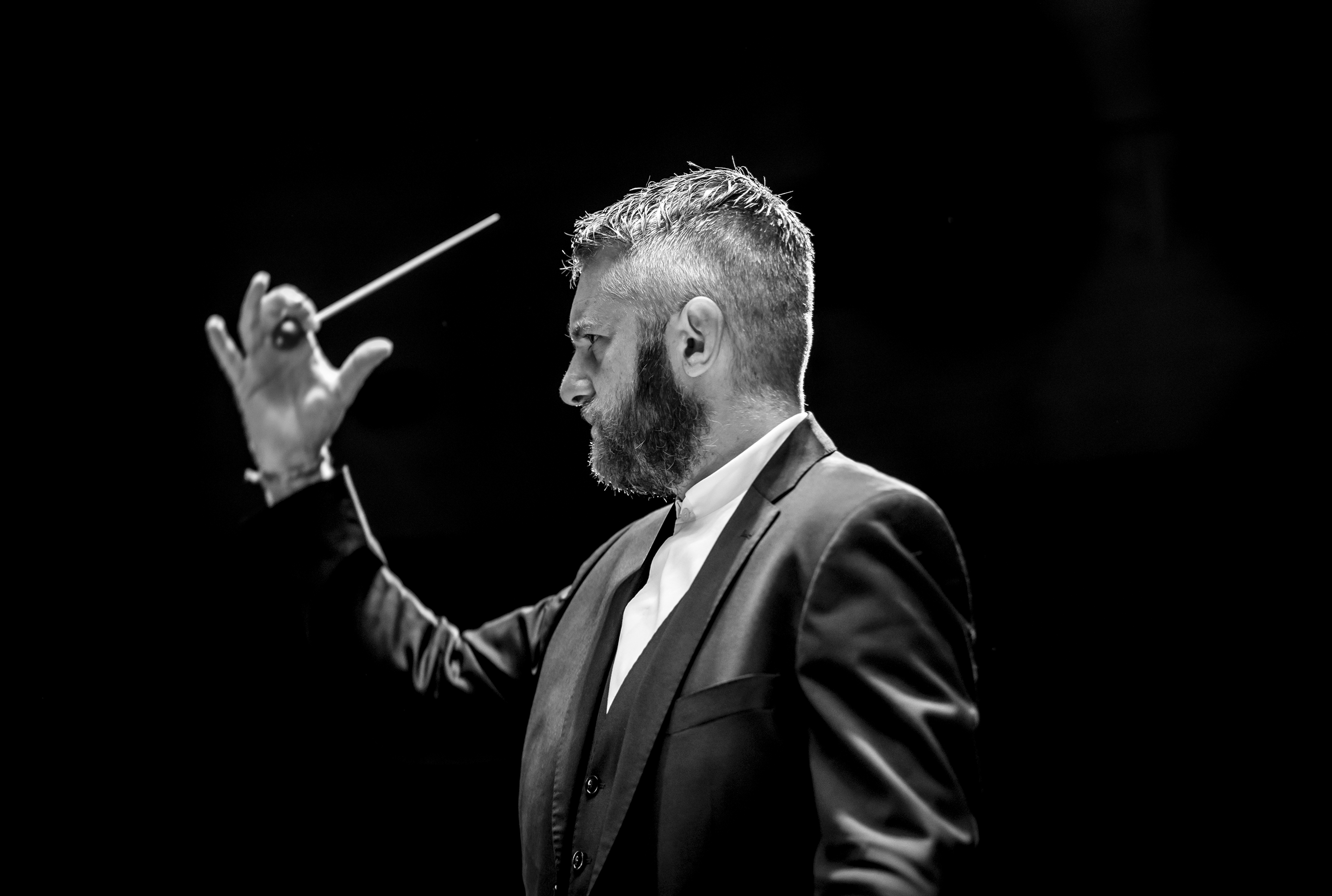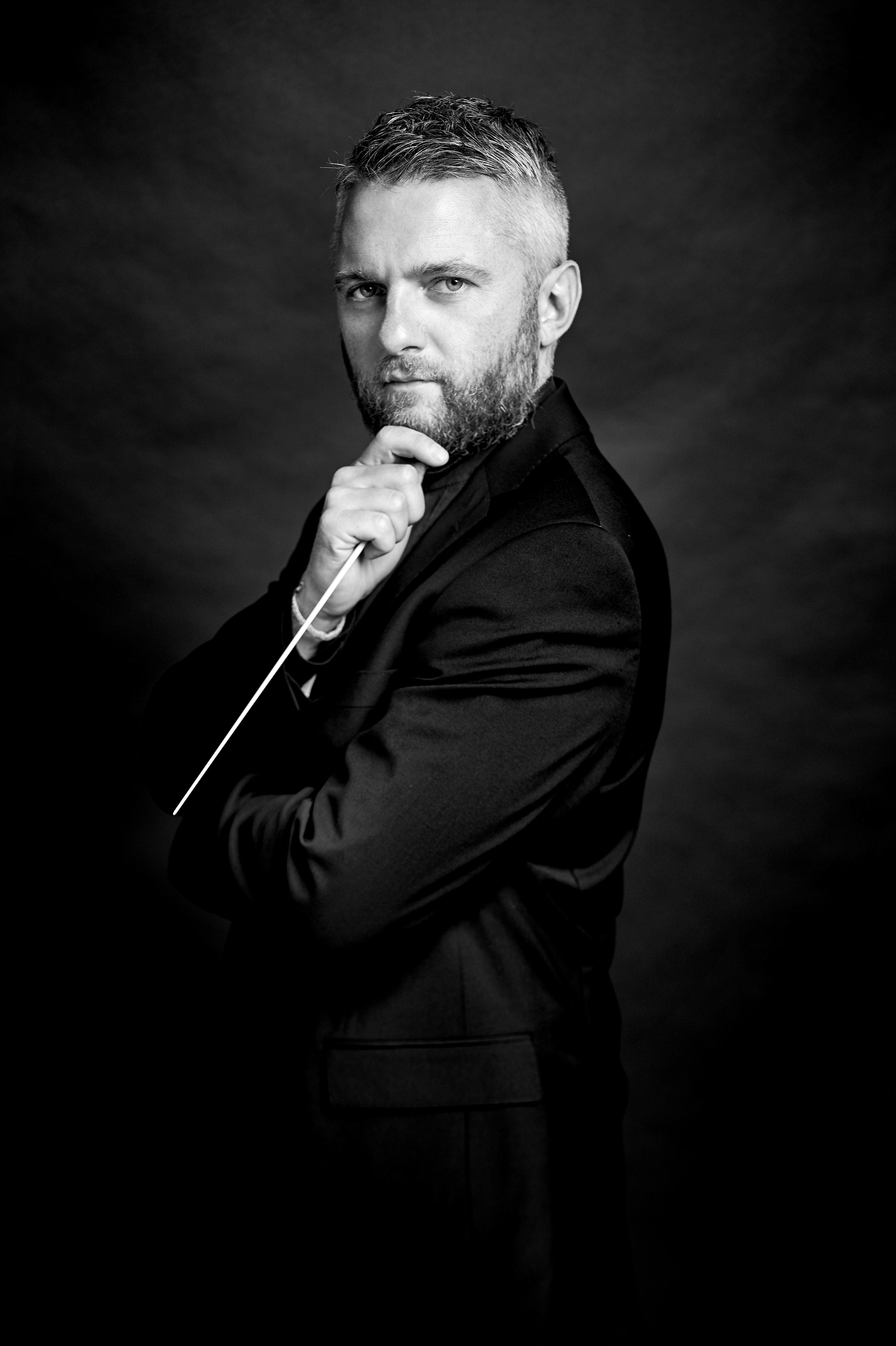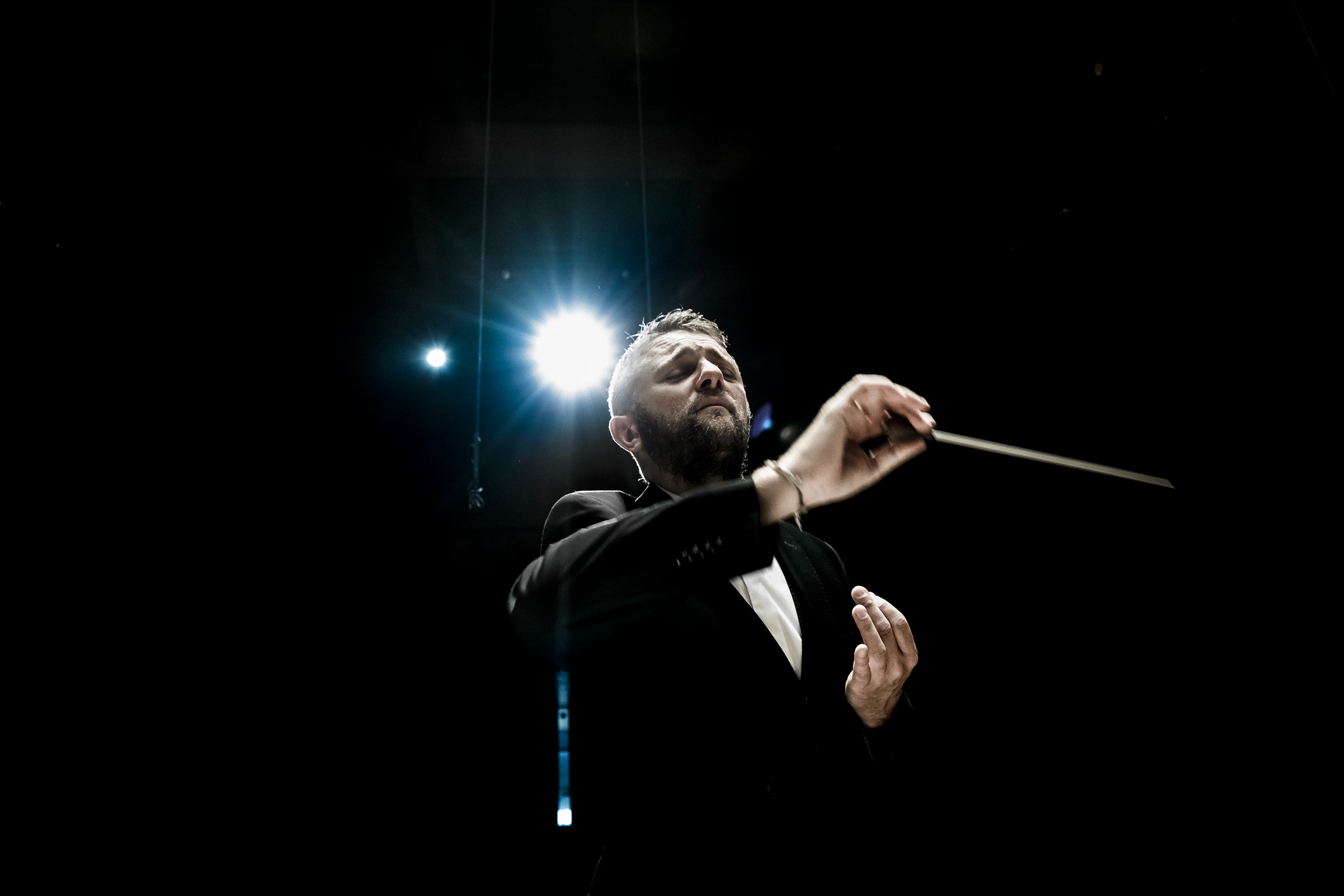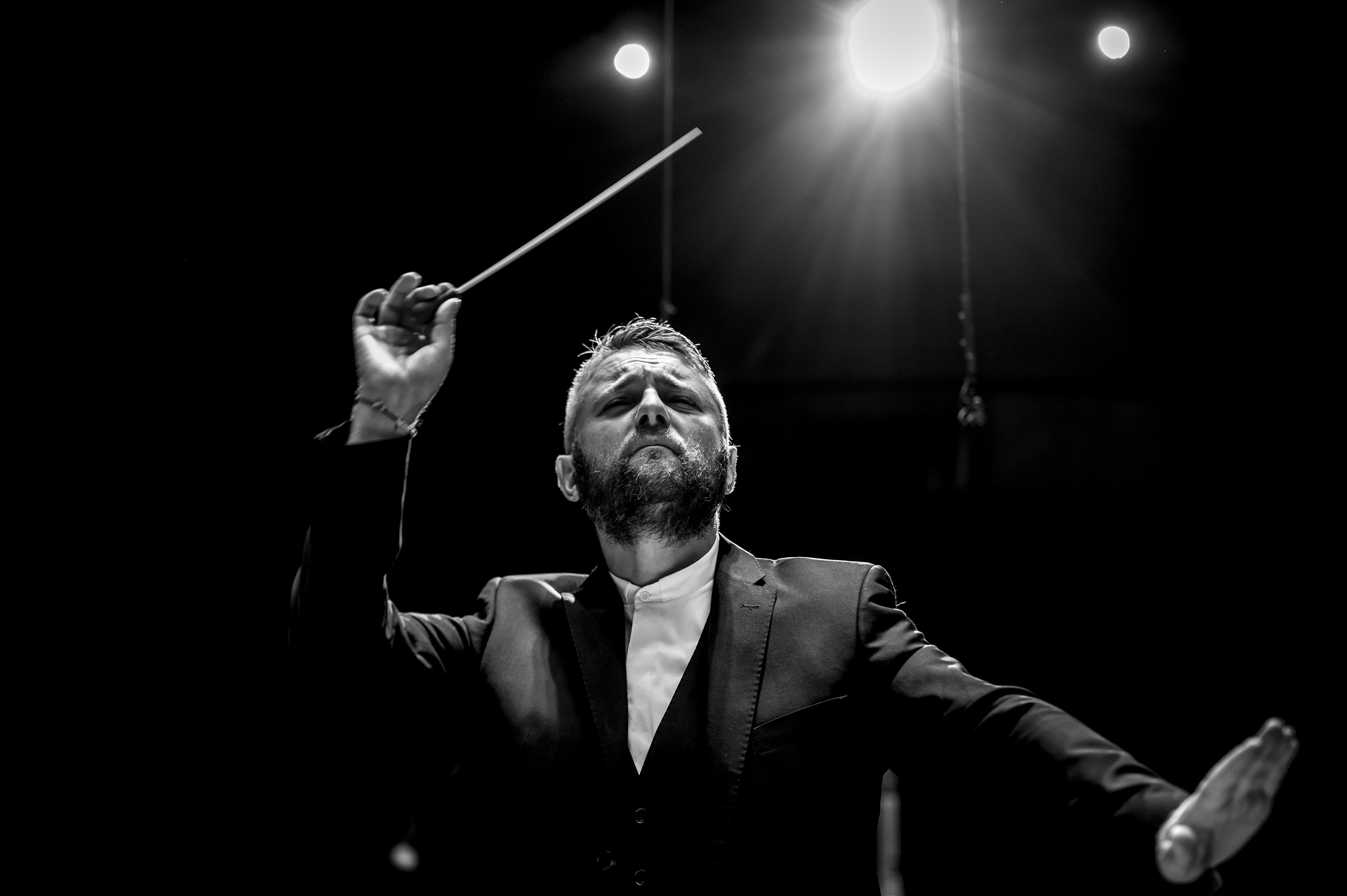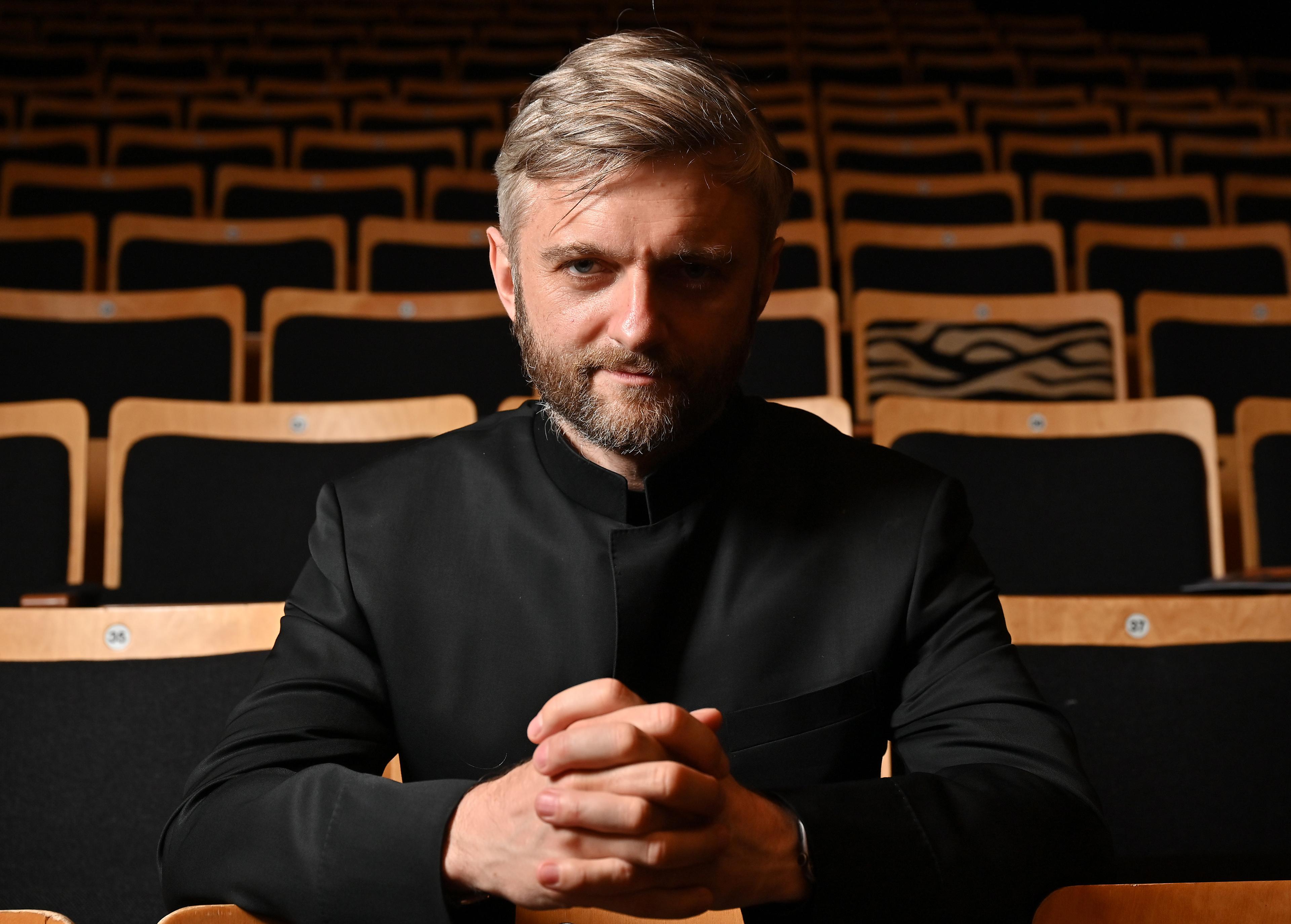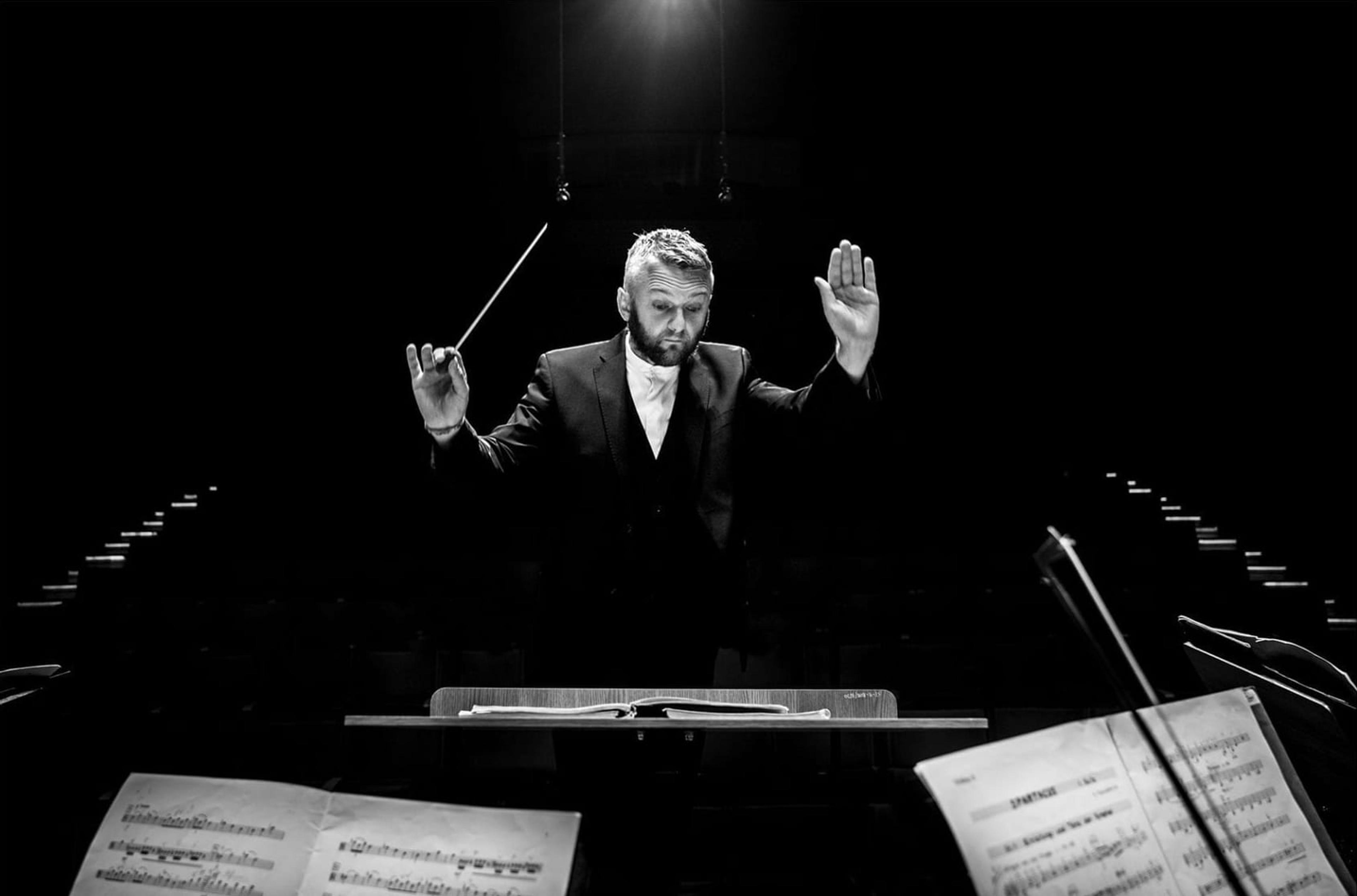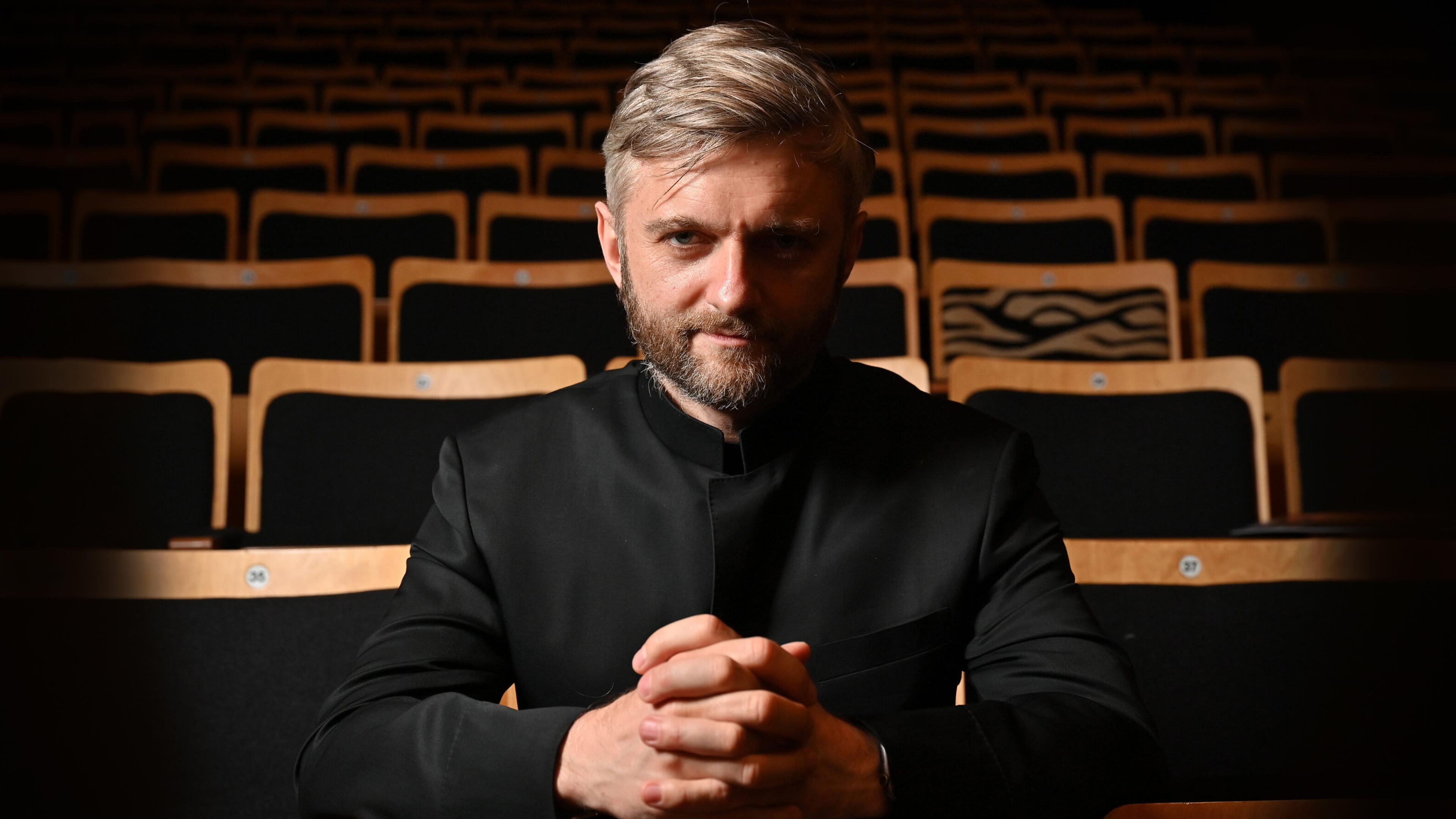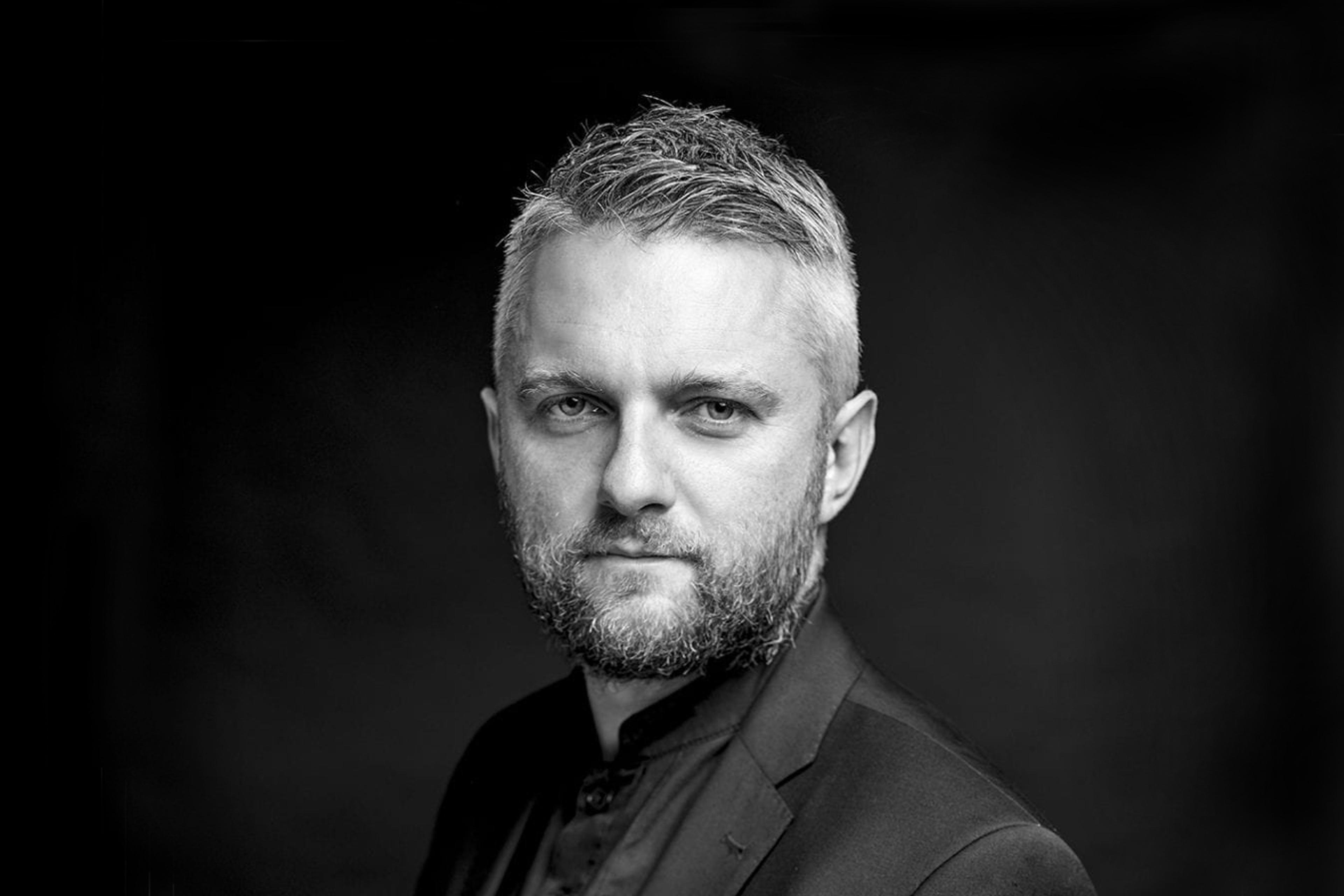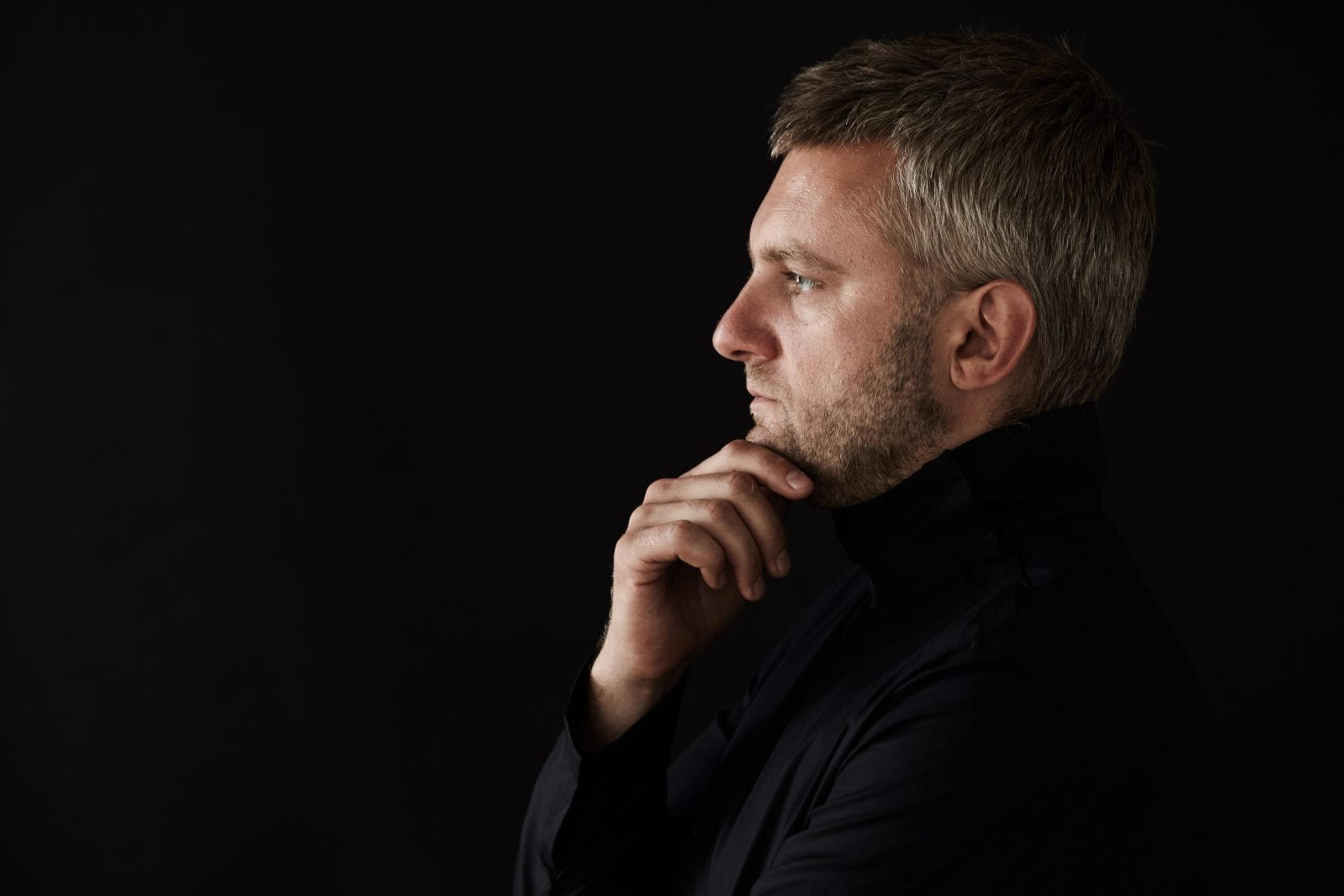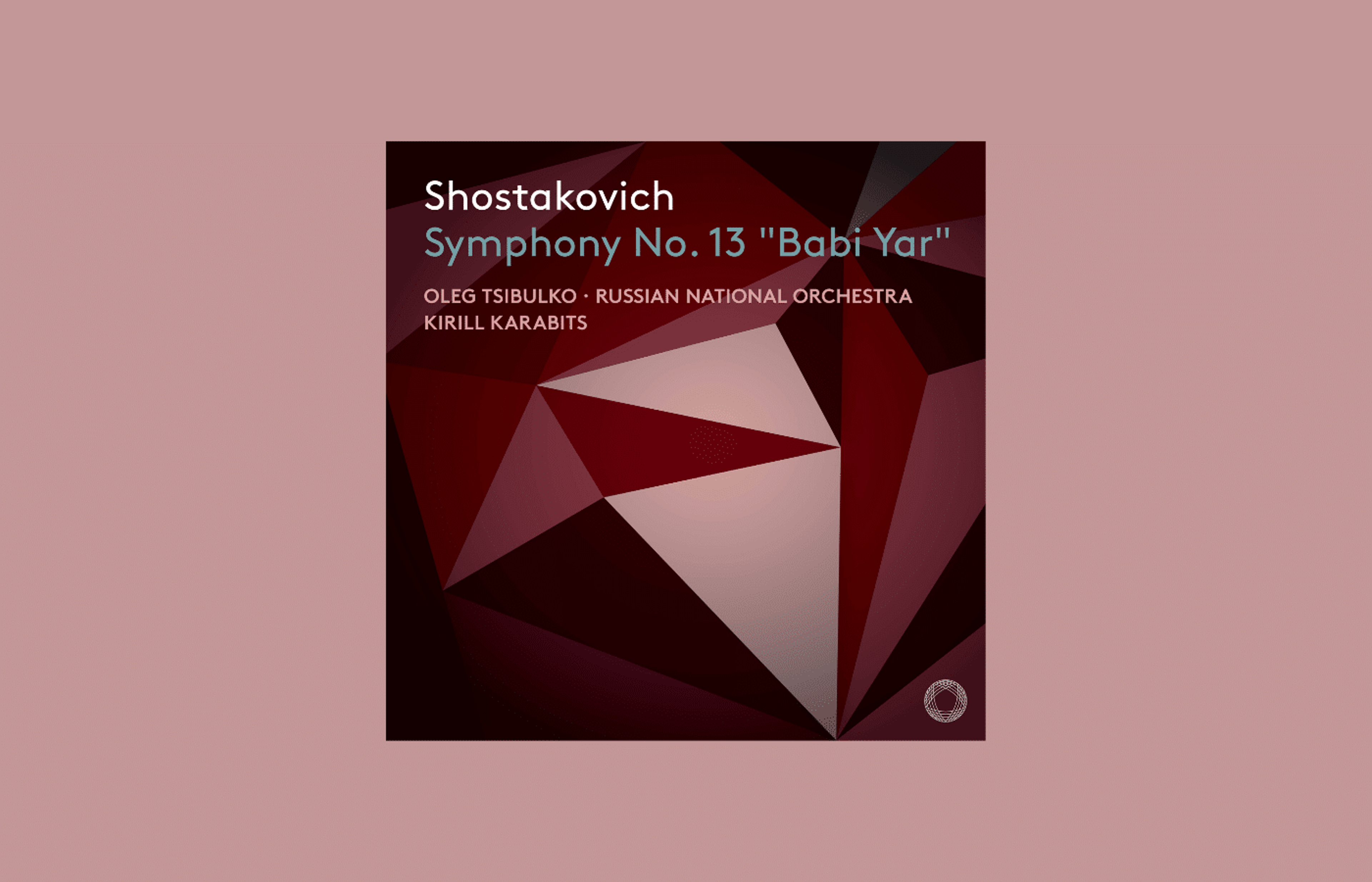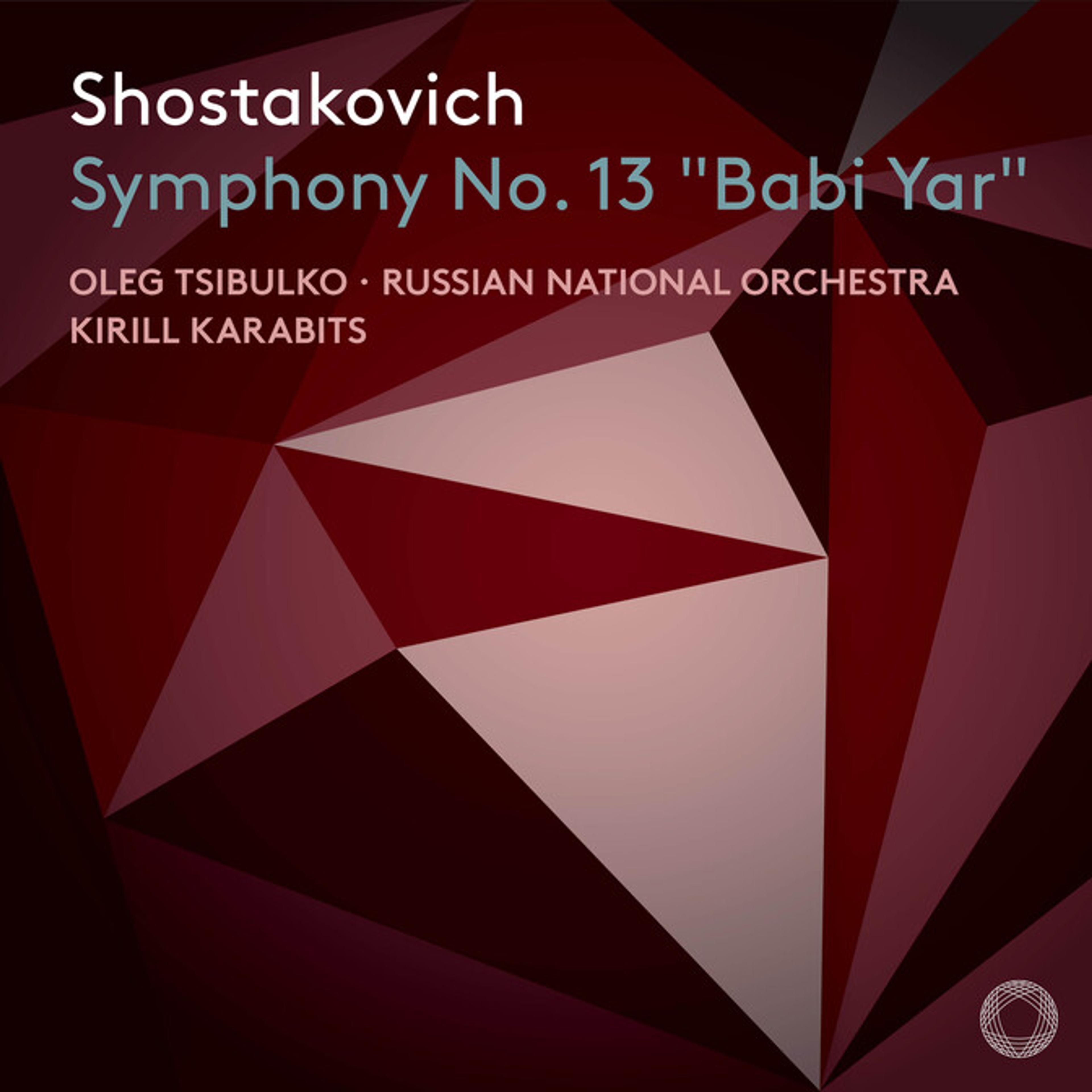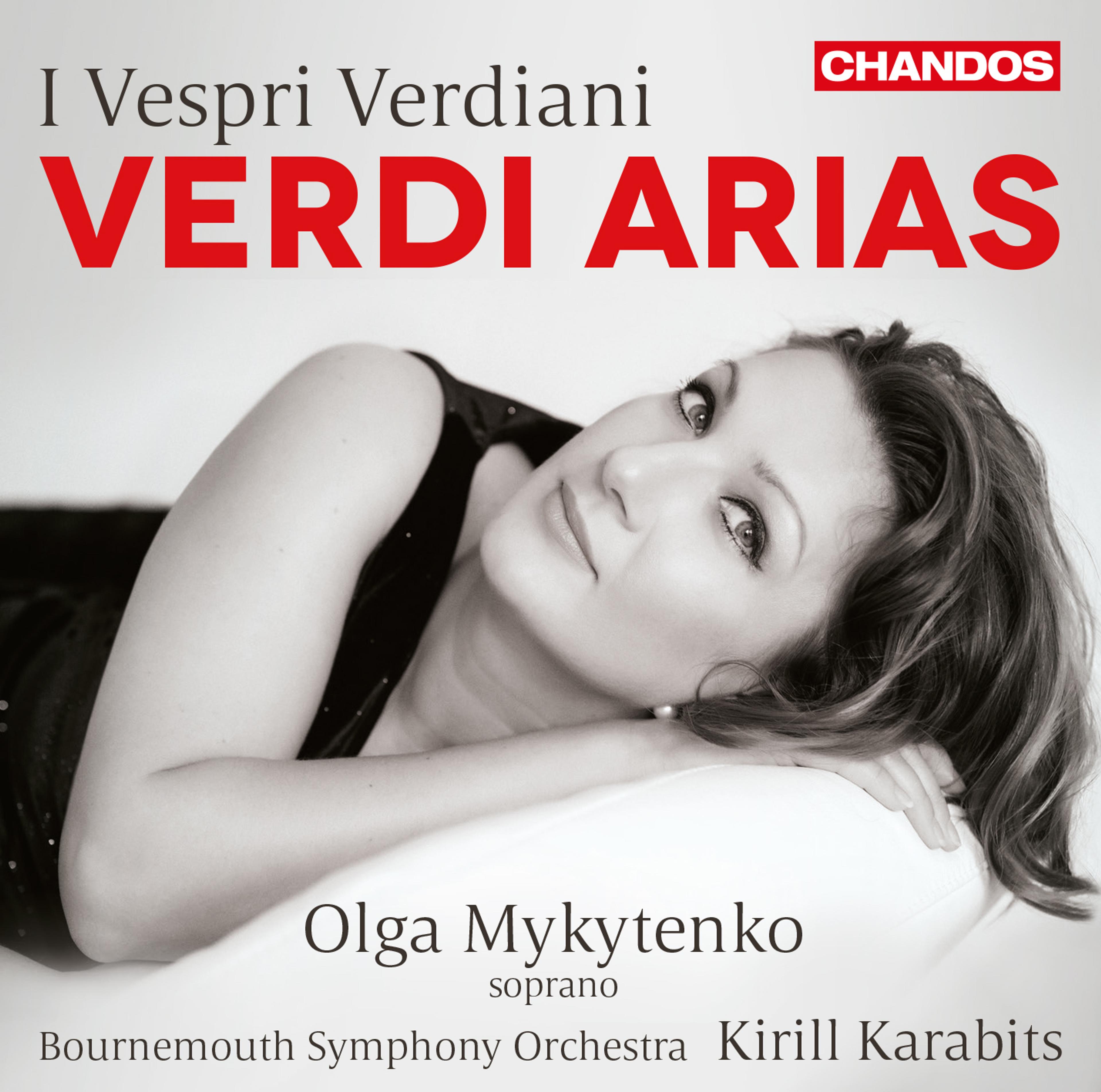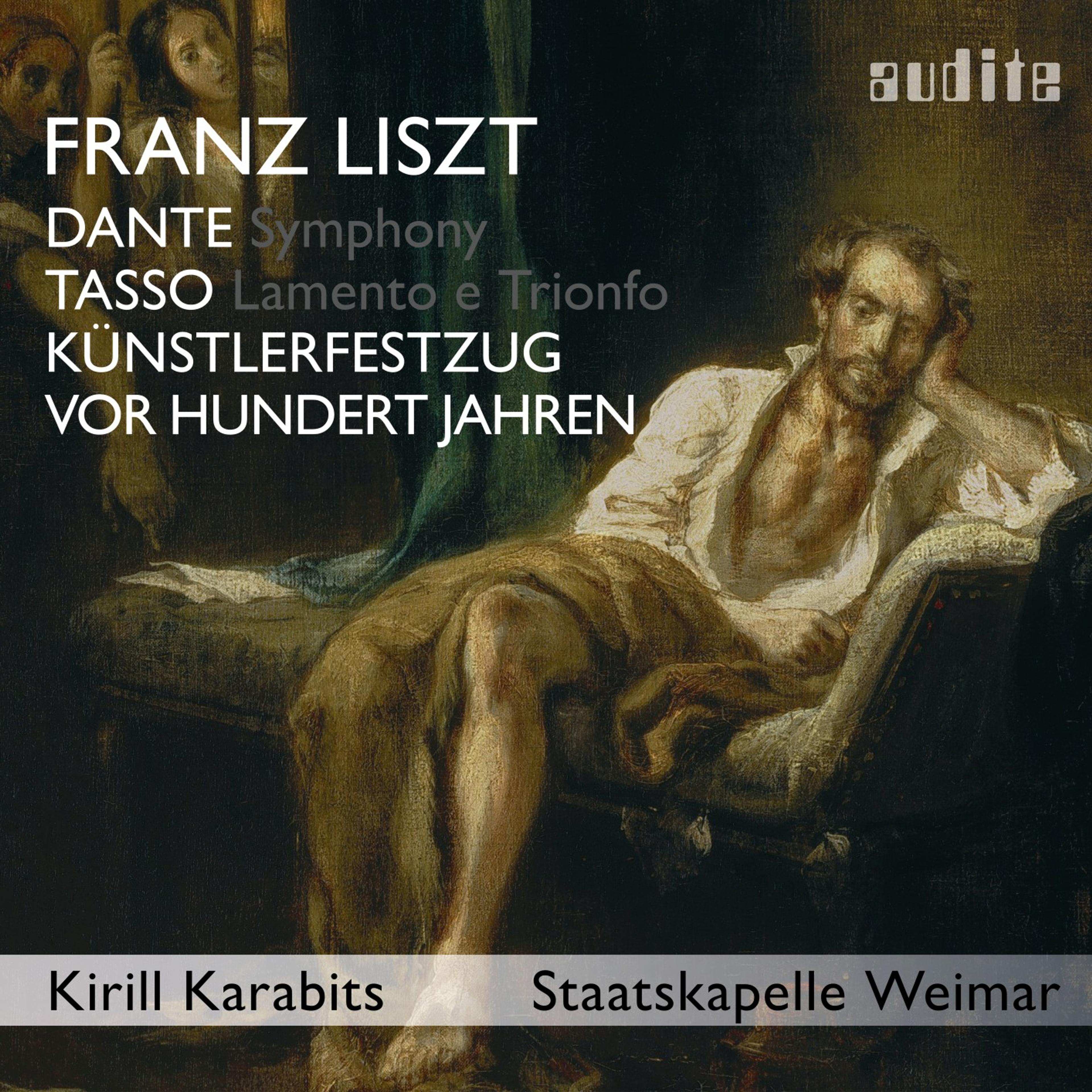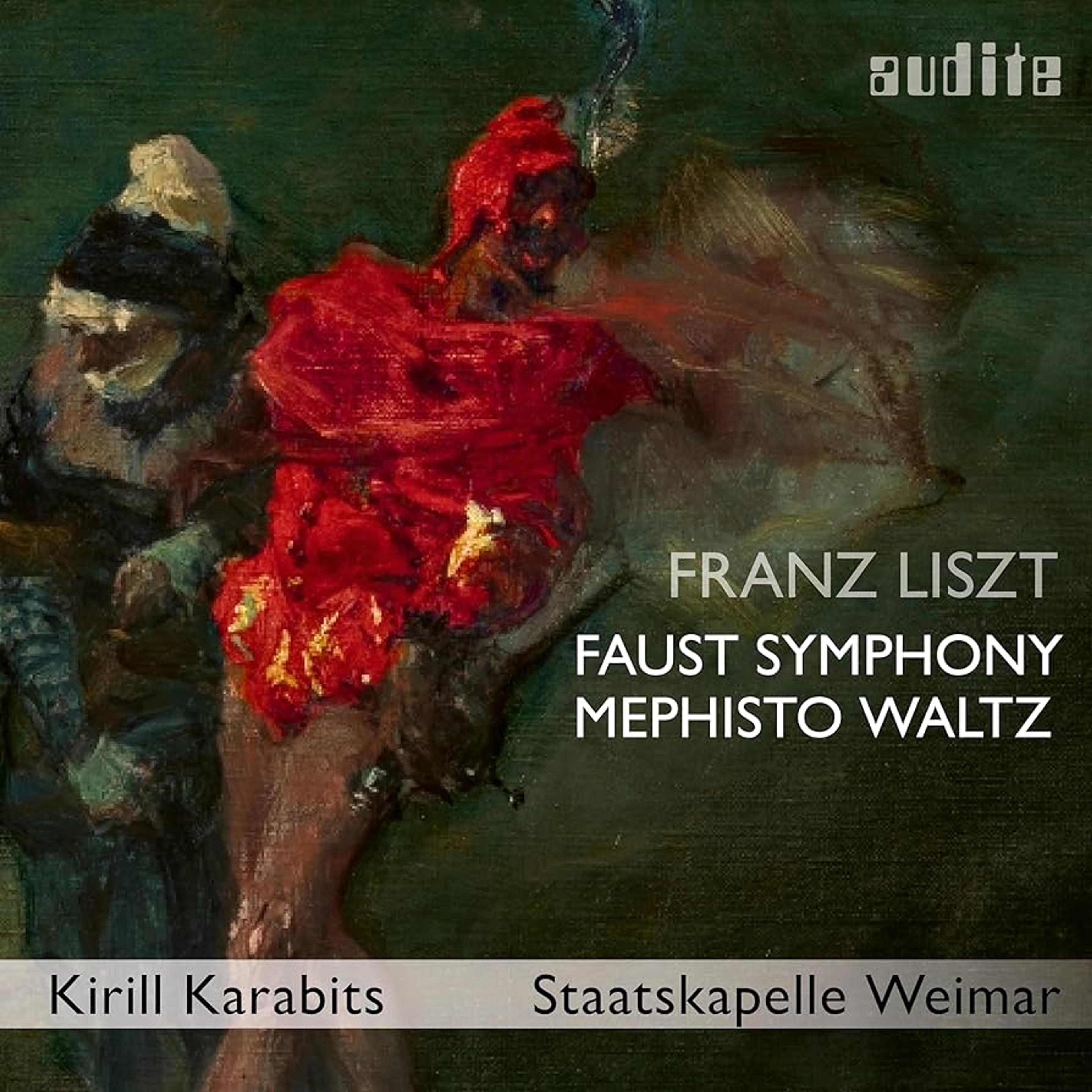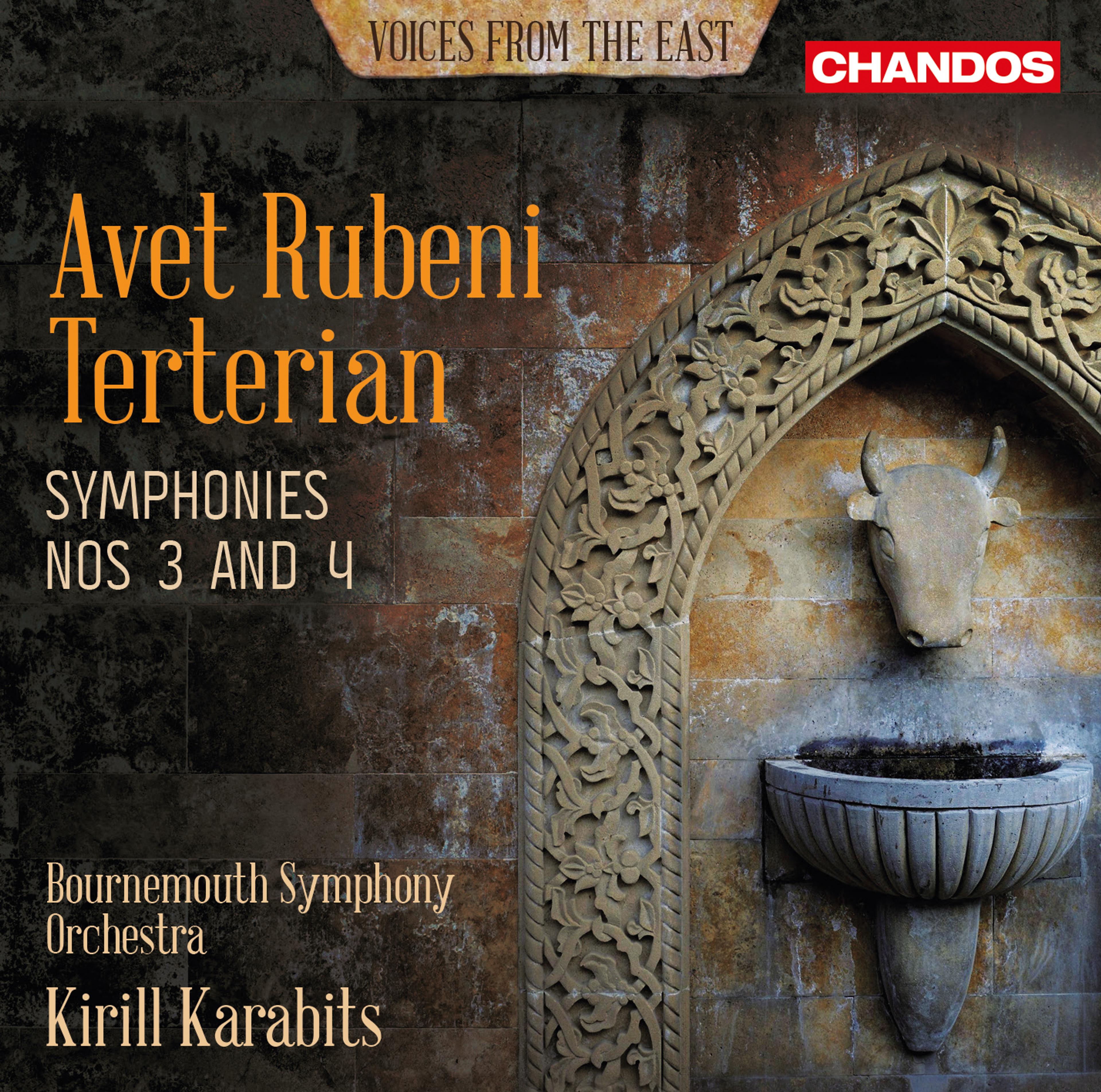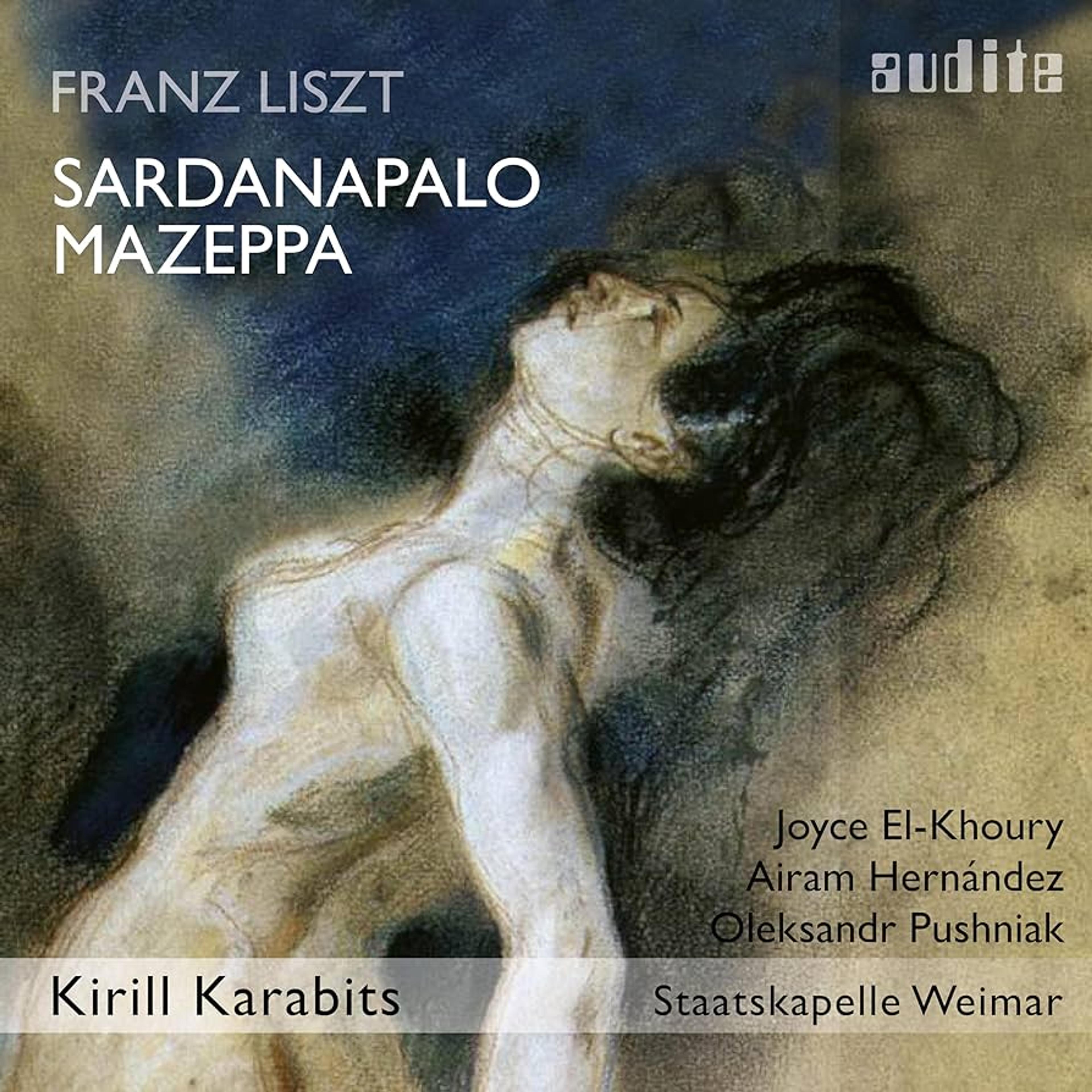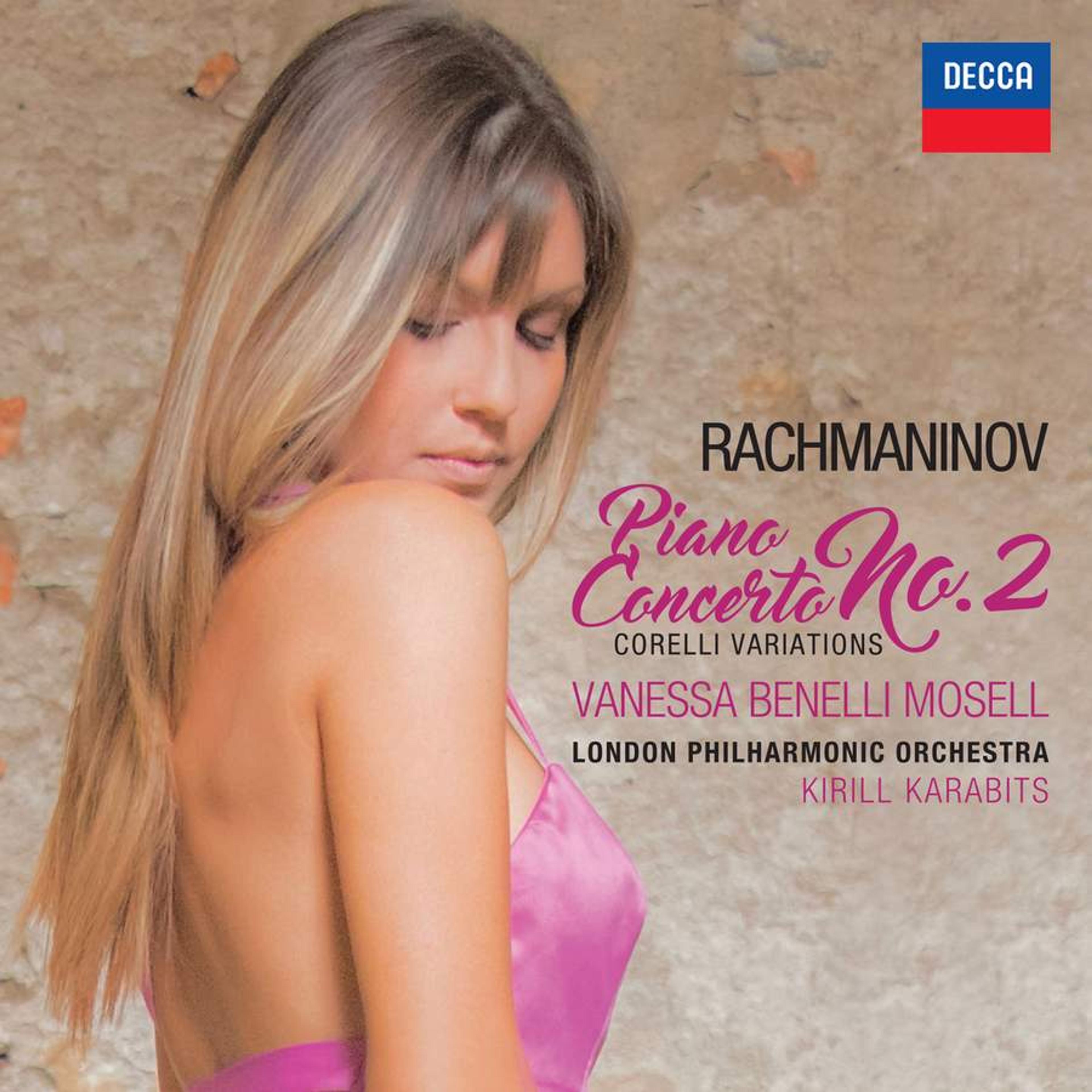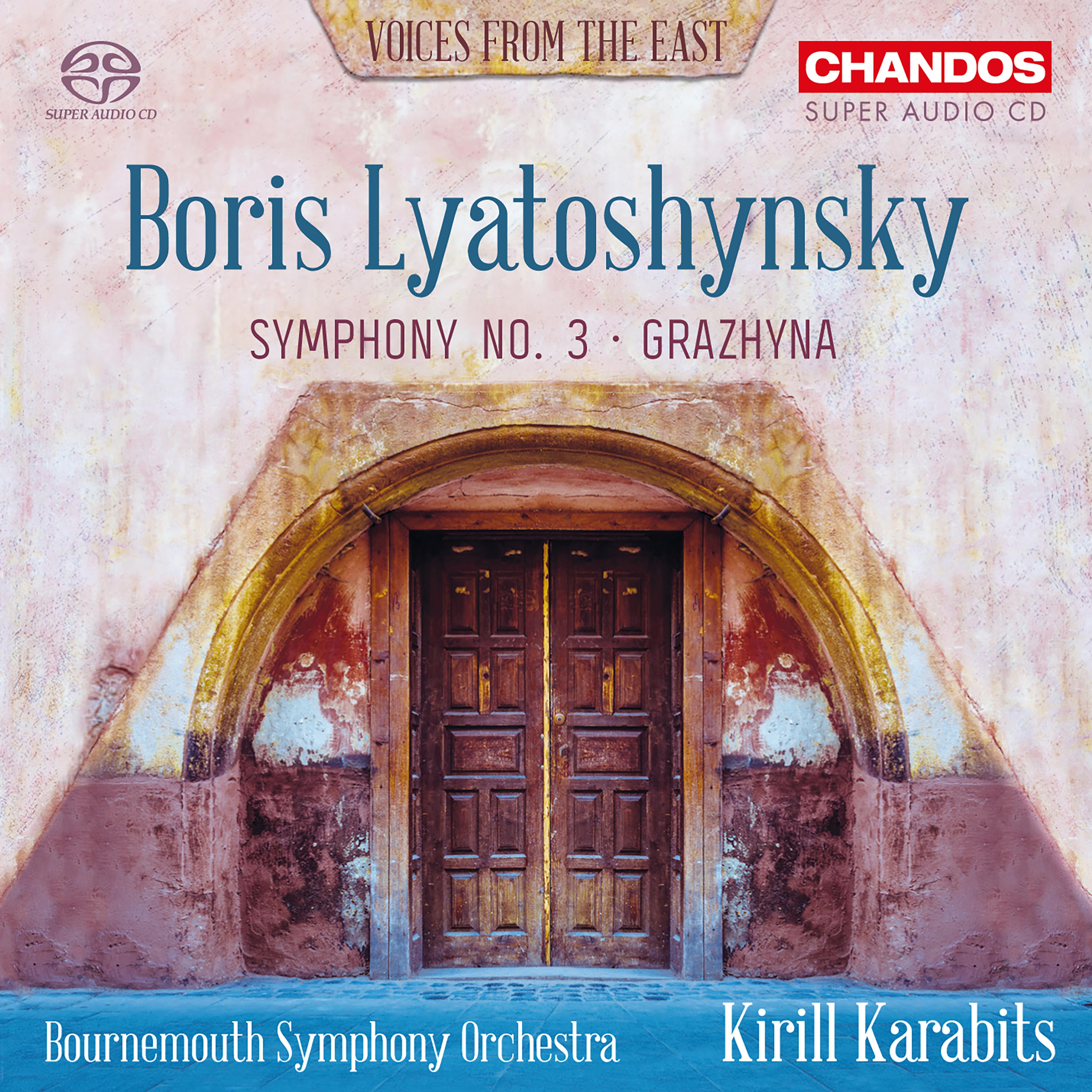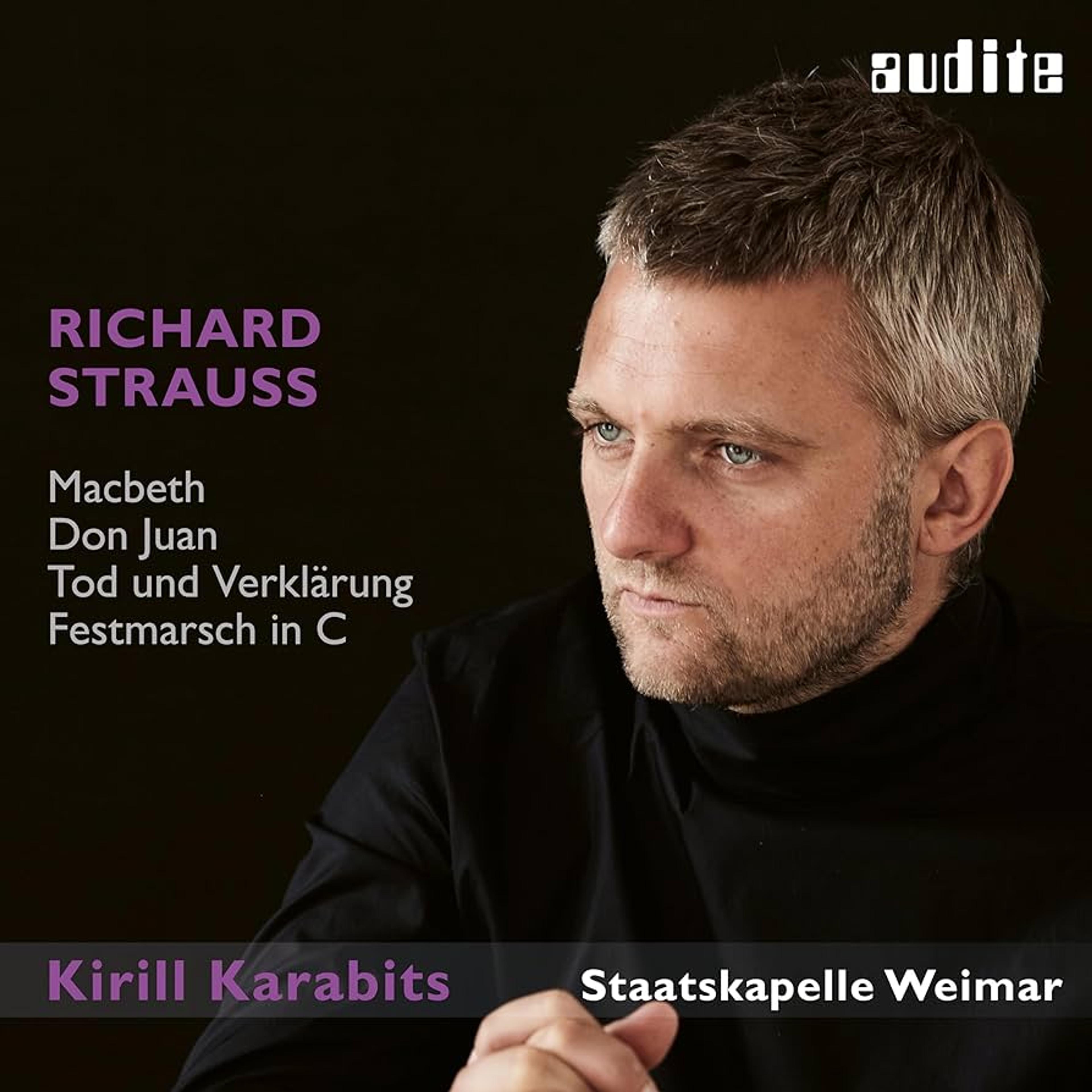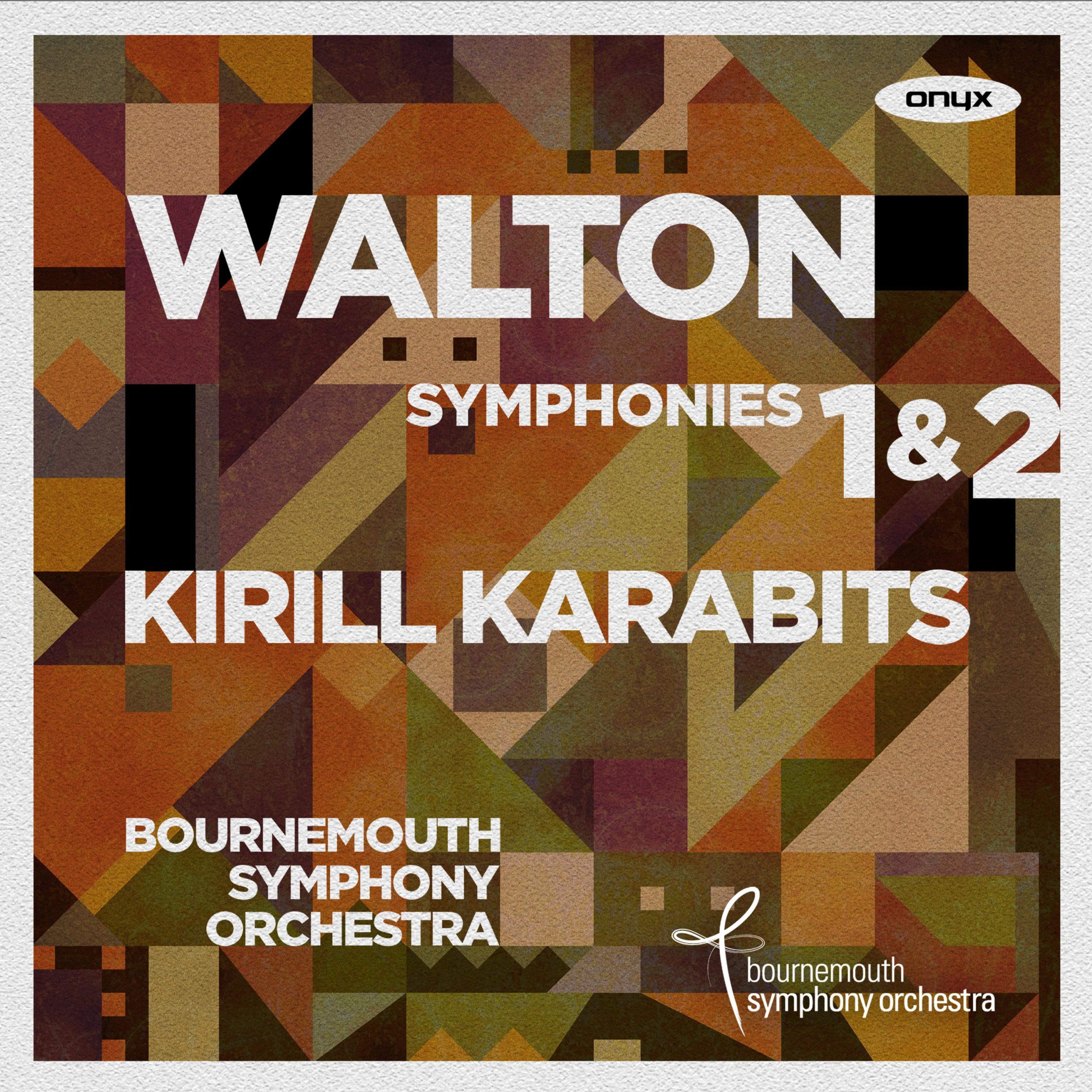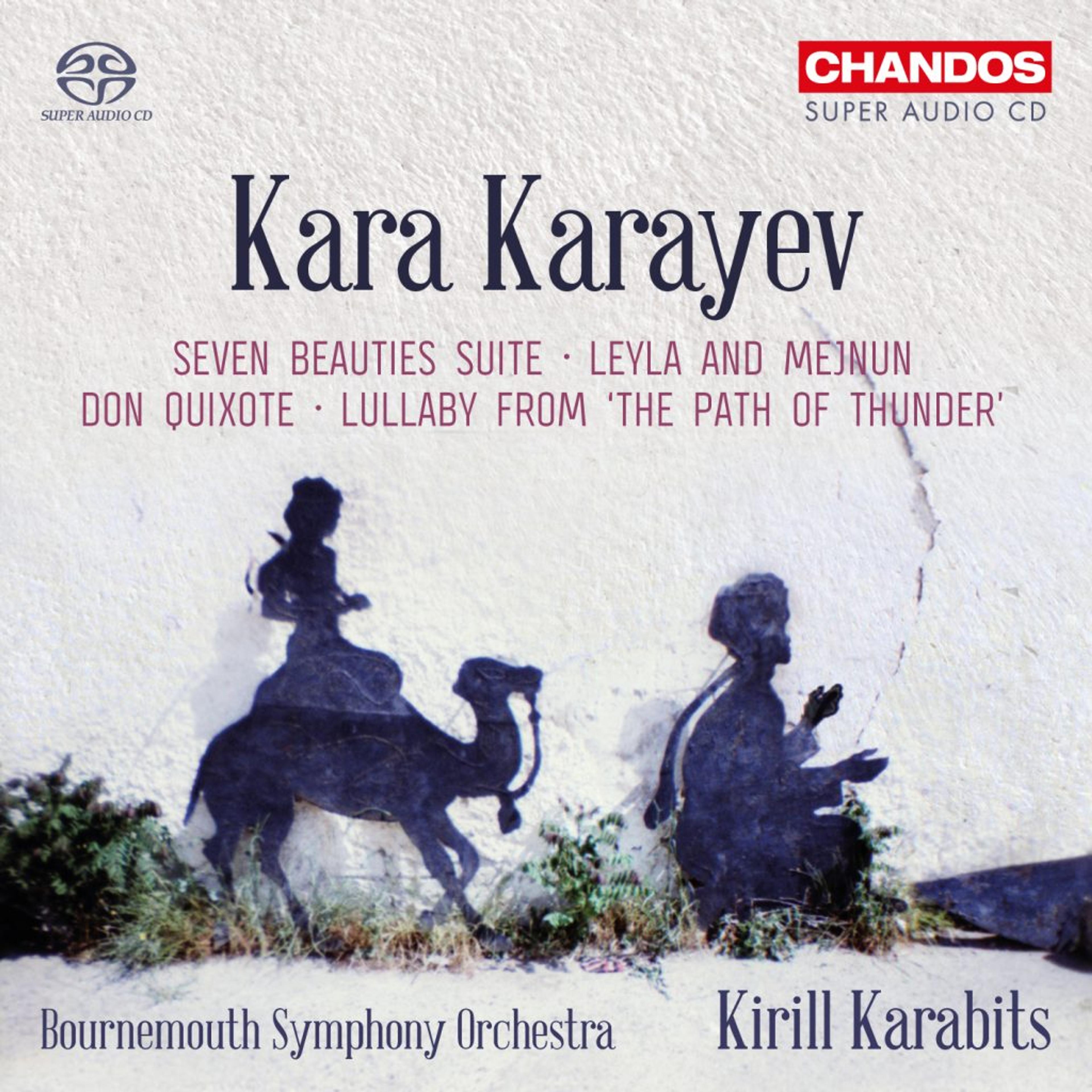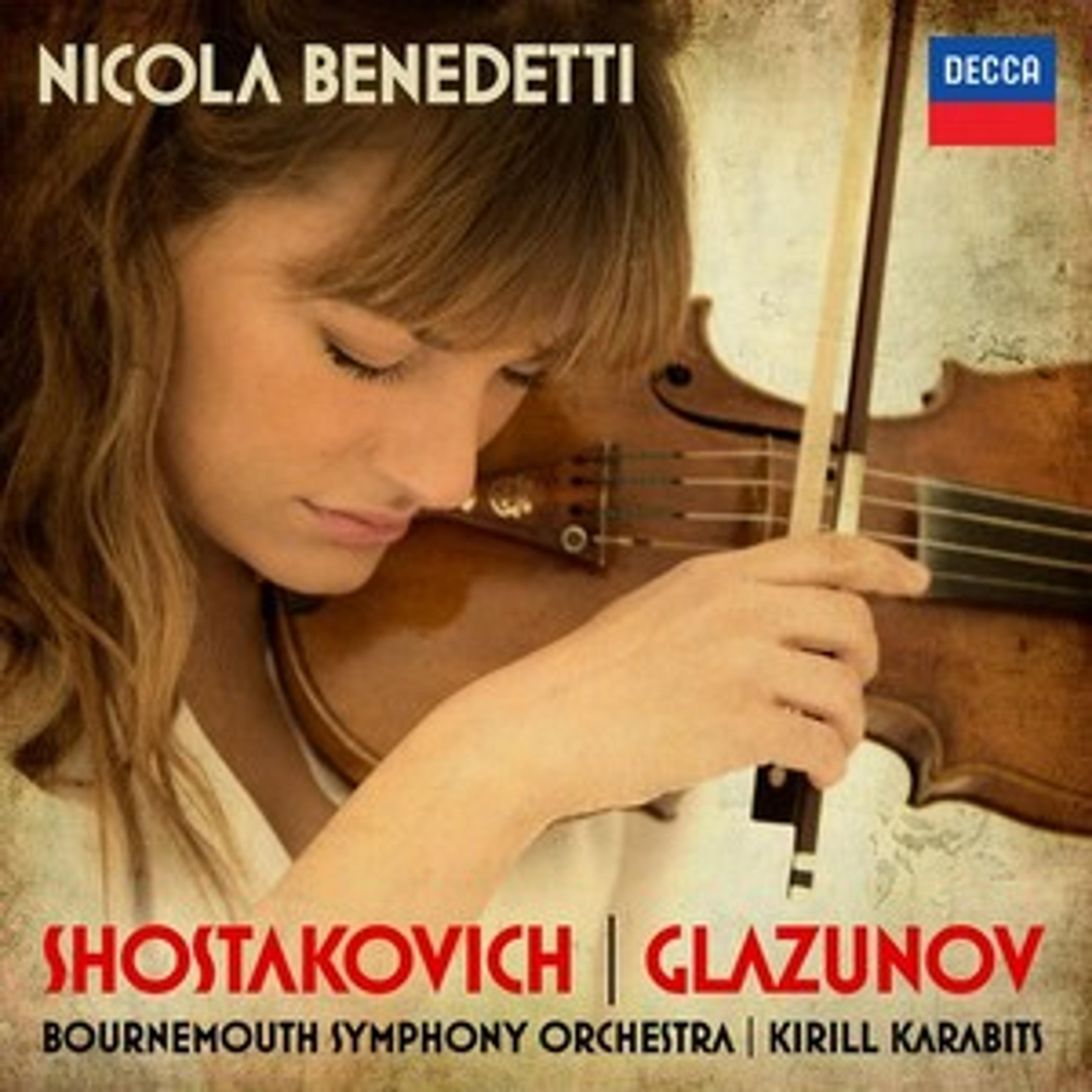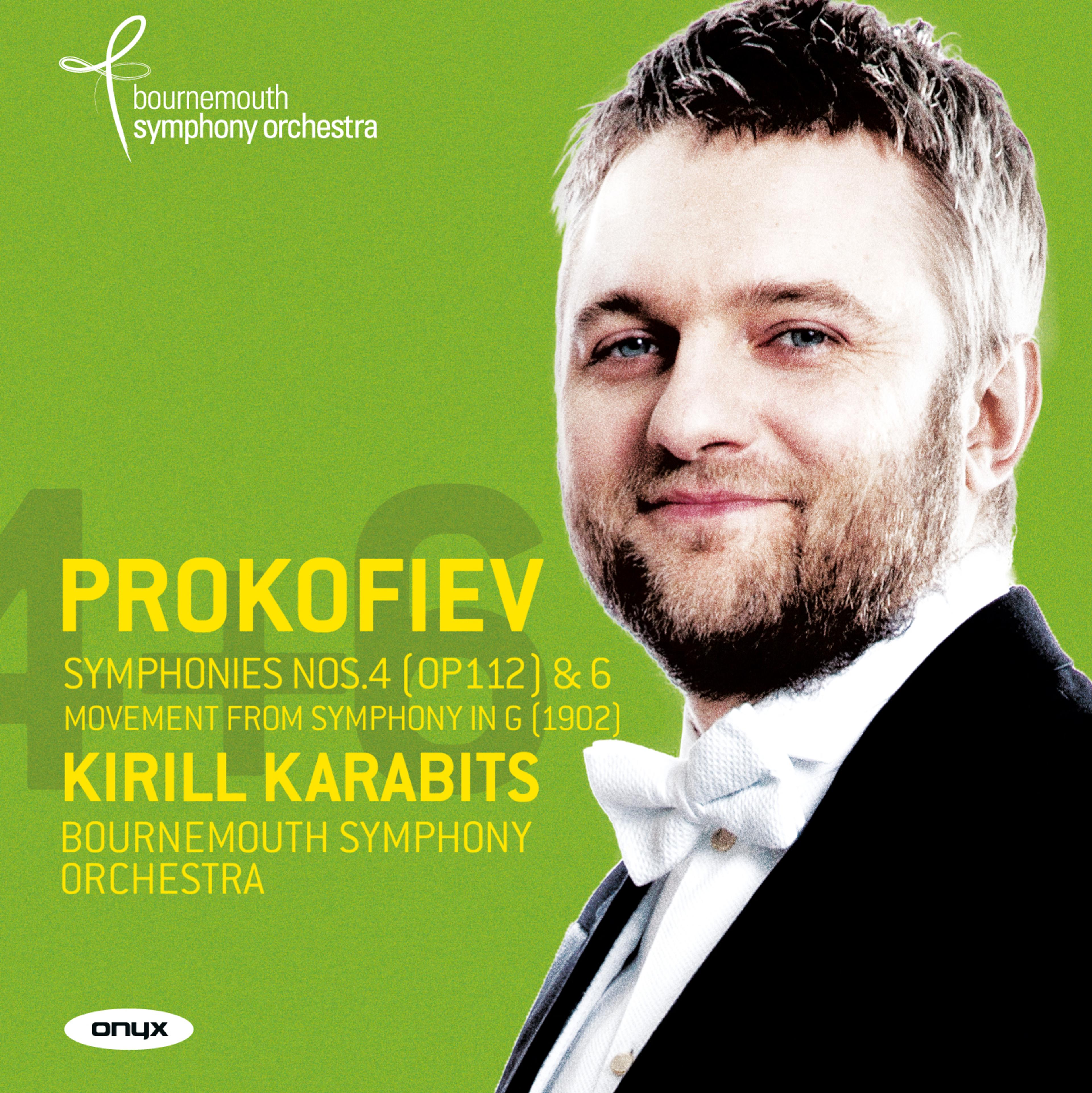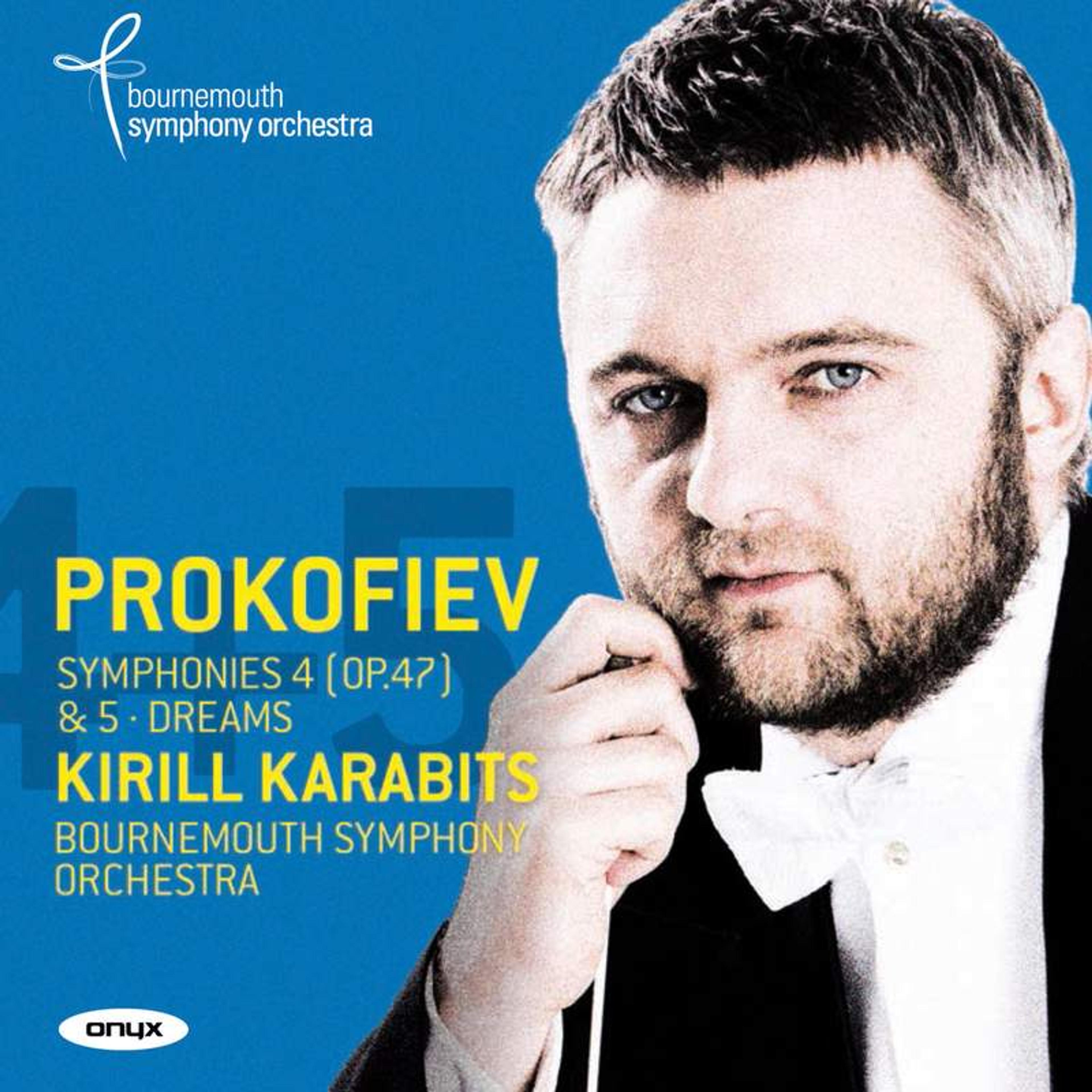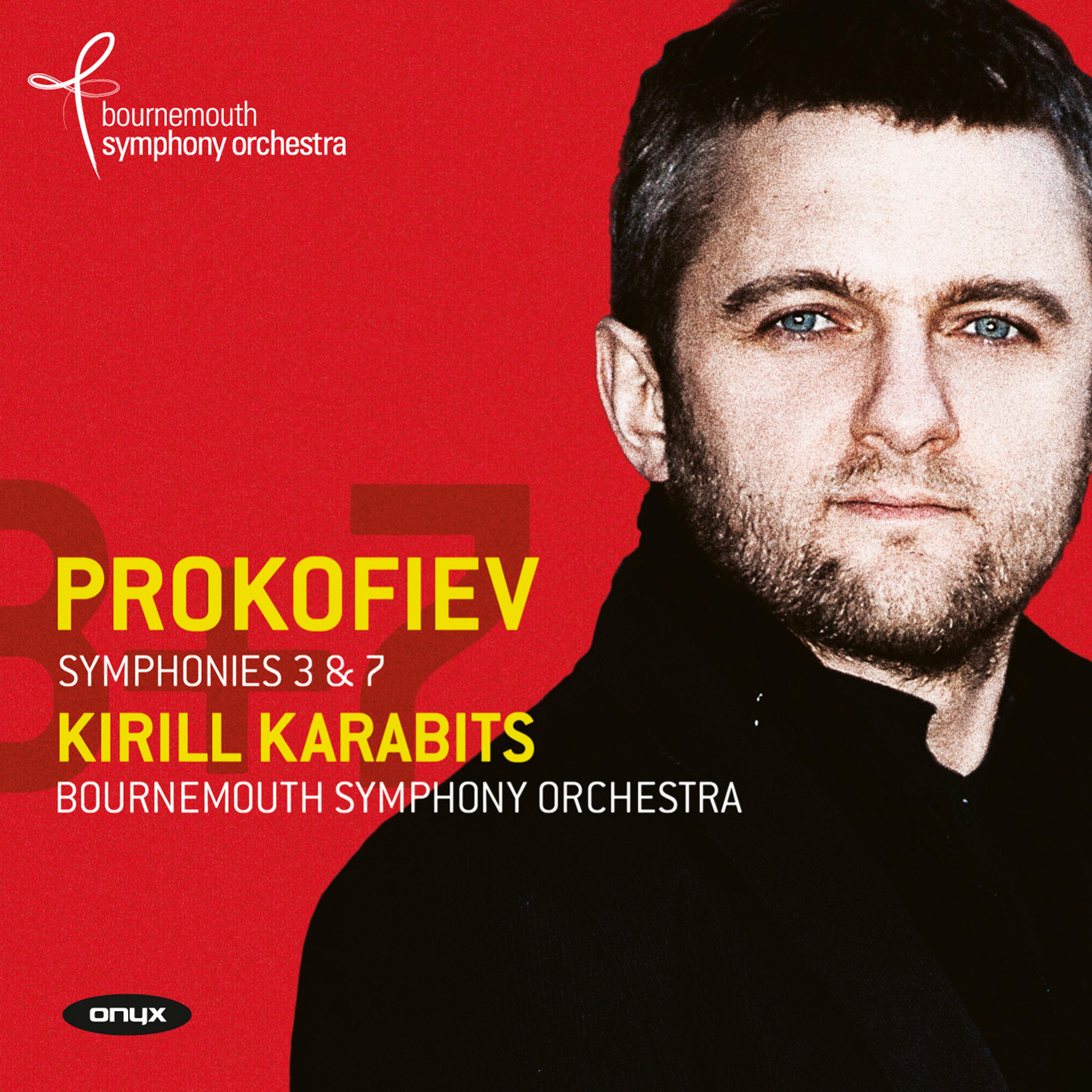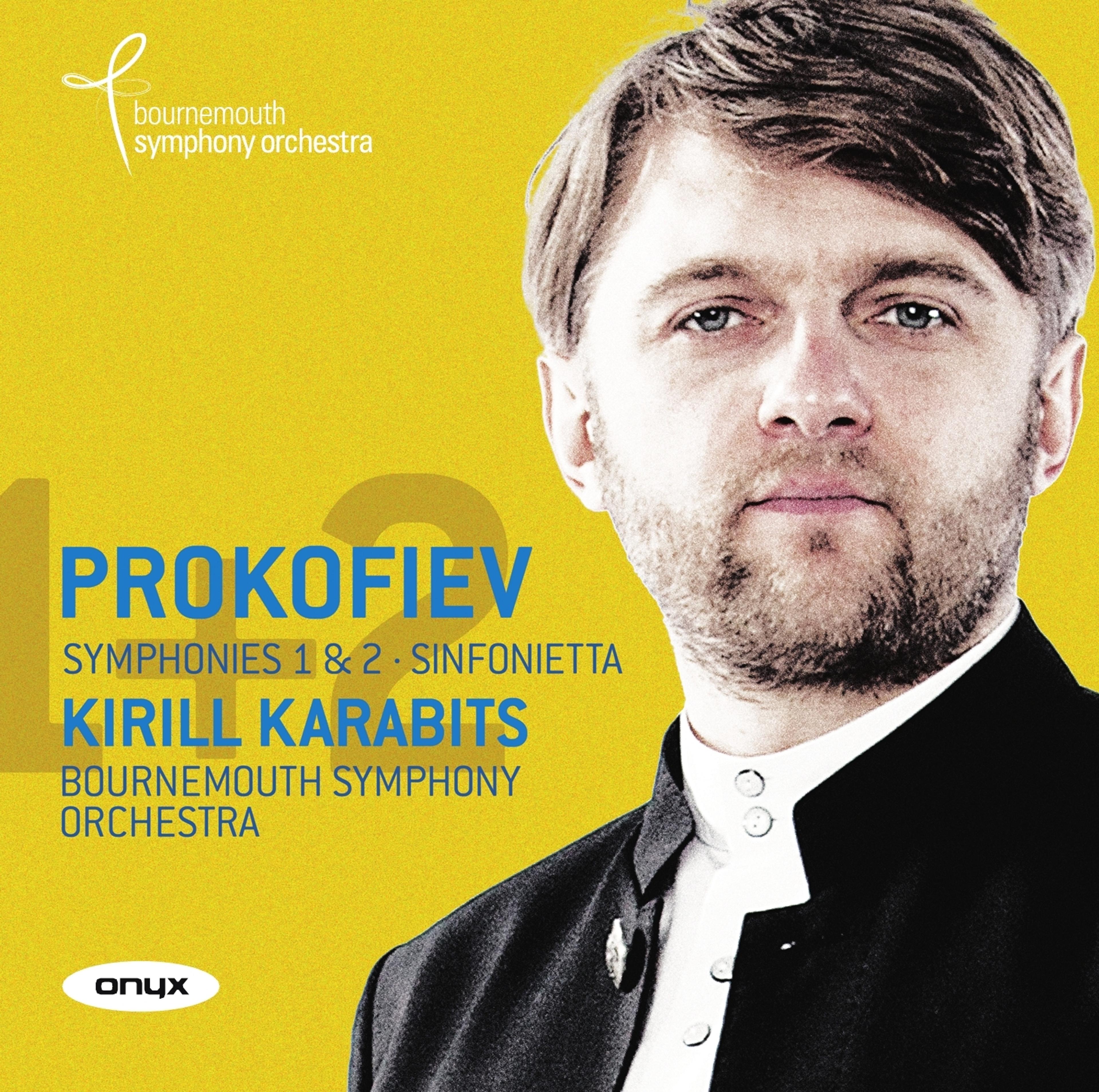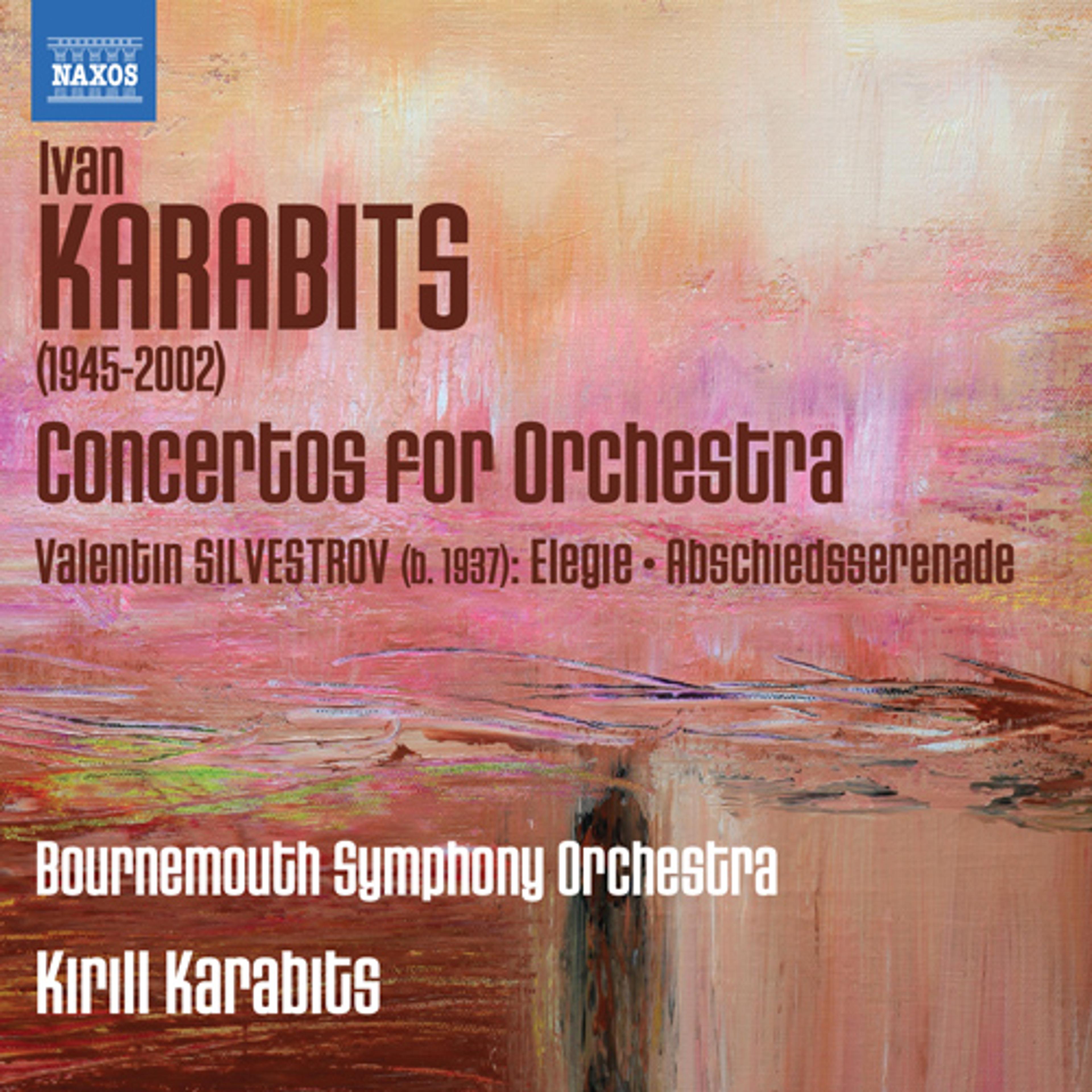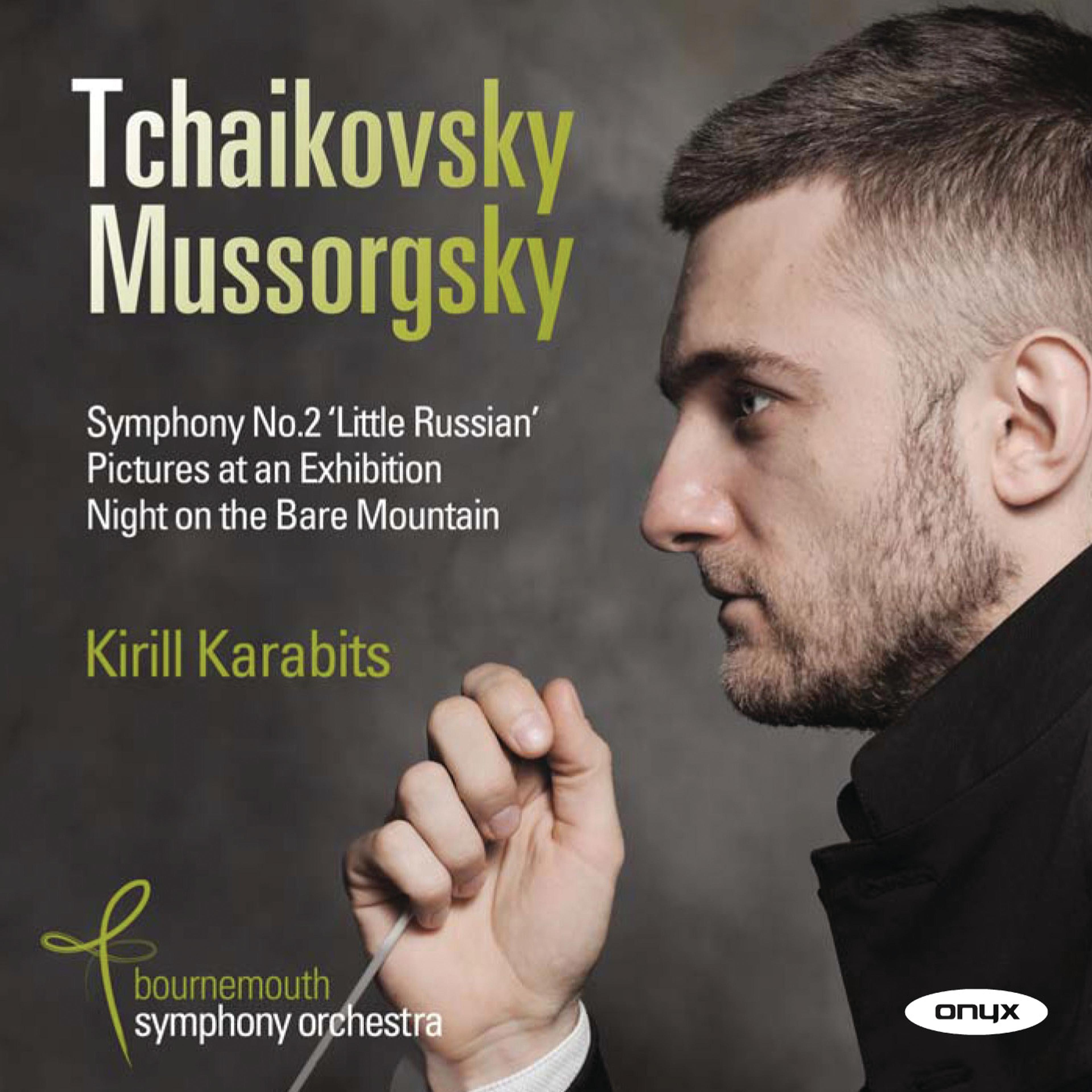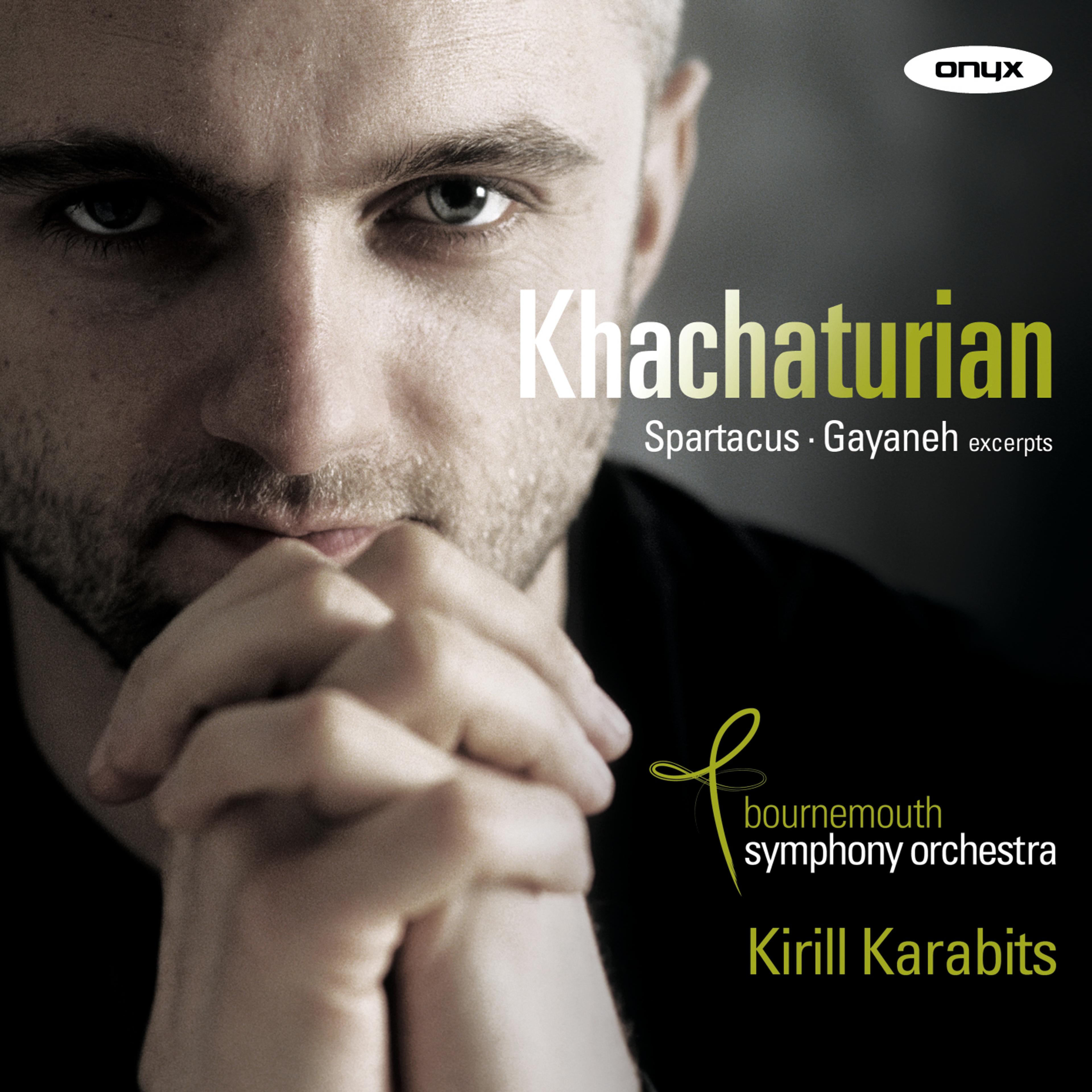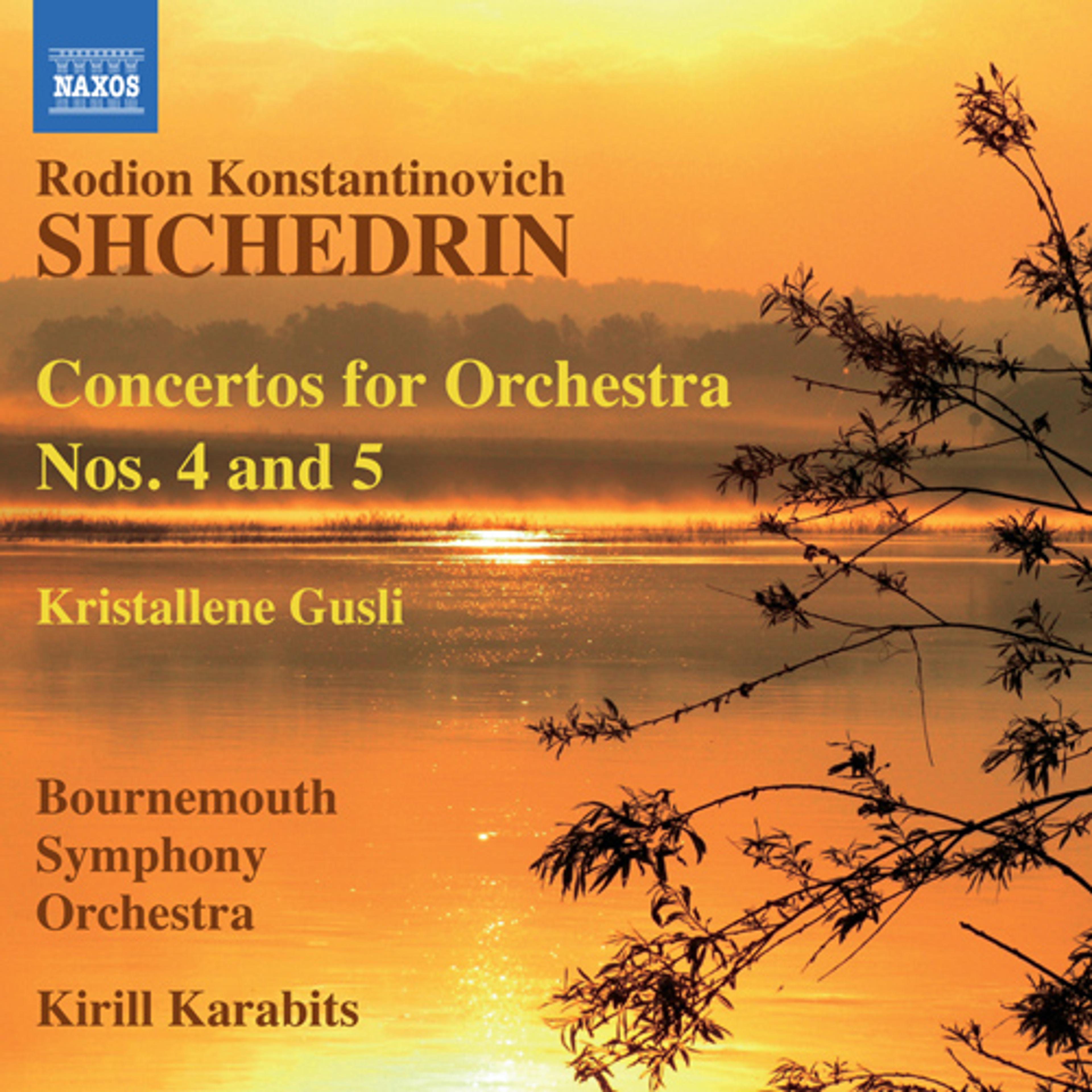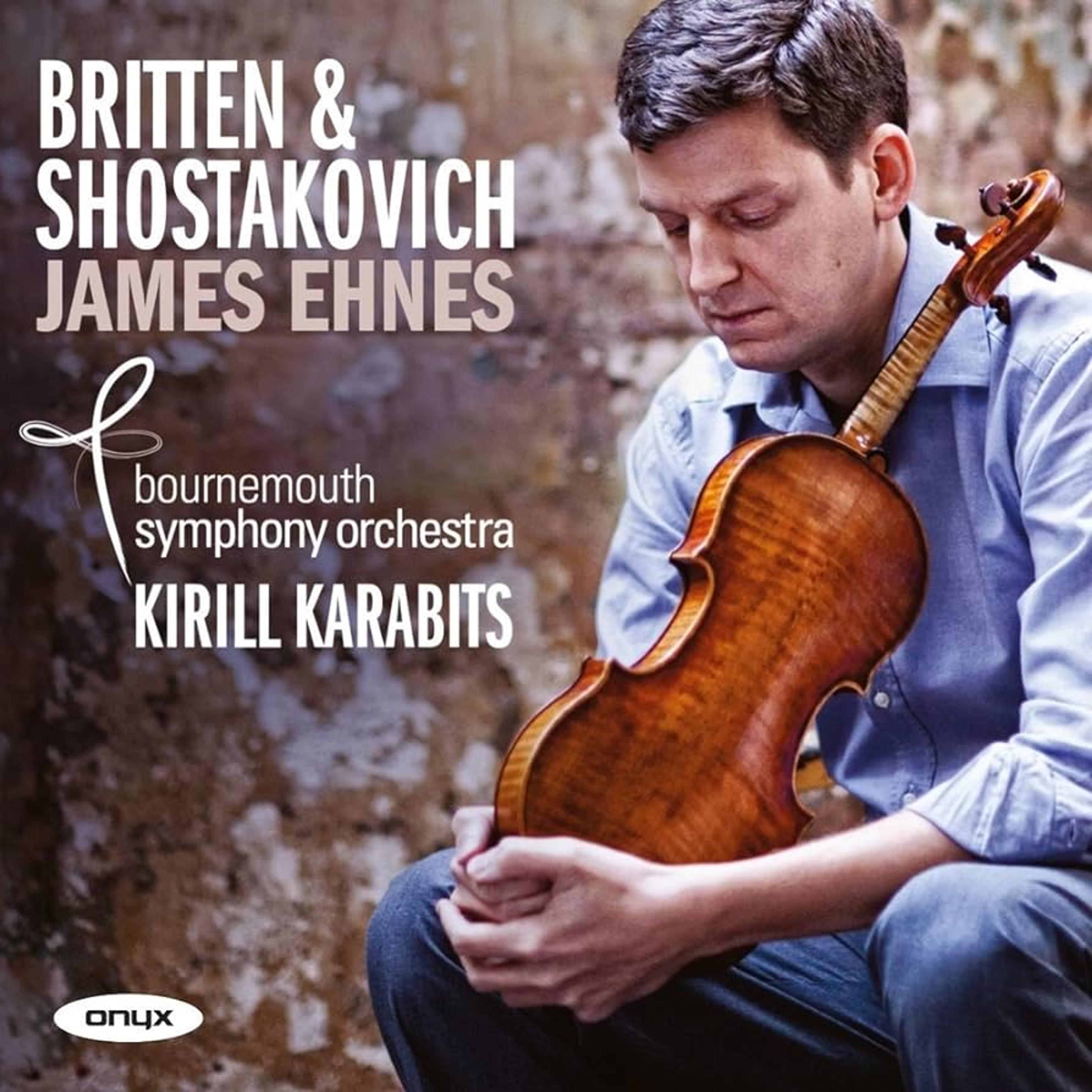Kirill Karabits OBE
- Conductor


About Kirill
Kirill Karabits has been Chief Conductor of the Bournemouth Symphony Orchestra for 15 years, and their relationship is celebrated worldwide. Together, they have made many critically acclaimed recordings, performed regularly at the BBC Proms, celebrated the re-opening of Bristol Beacon, appeared together at London’s Barbican Centre as part of the Beethoven celebrations and at Southbank Centre for Kirill’s bold programming brand Voices from the East.
Highlights of the 2025/26 season include engagements with London Philharmonic Orchestra, Royal Scottish National Orchestra, Tokyo Metropolitan Symphony Orchestra, Trondheim Symphony Orchestra, BBC Symphony Orchestra, Orchestre Philharmonique de Strasbourg, and National Polish Radio Symphony Orchestra during the Beethoven Festival in Poland. Kirill also embarks on a major Chinese Tour culminating at Macau International Music Festival, followed by an appearance at Seoul Arts Center for the closing concert of the Seoul International Music Festival. The season will conclude with a two-month residency conducting La Traviata at the Bregenz Festival with the Wiener Symphoniker.
As guest conductor, Kirill has worked with many leading orchestras, including the Münchner Philharmoniker, London Symphony Orchestra, Orchestre National de France, BBC Symphony Orchestra, Yomiuri Nippon Symphony, and in North America with Chicago Symphony, Pittsburgh Symphony, Philadelphia Orchestra, Dallas Symphony, Toronto Symphony and The Cleveland Orchestra.
A prolific opera conductor, Kirill has worked with the Deutsche Oper (Don Giovanni), Opernhaus Zürich (Boris Godunov, La Bohème), Oper Stuttgart (Death in Venice), Glyndebourne Festival Opera (La Bohème, Eugene Onegin), Staatsoper Hamburg (Madama Butterfly), English National Opera (Don Giovanni, Die tote Stadt), The Grange Festival (Così fan tutte), and conducted a performance of Der fliegende Holländer at the Wagner Geneva Festival in celebration of the composer’s anniversary.
Contact
For availability and general enquiries:

Ignatius Sokal

Terry Shew
For contracts, logistics and press:

Chiara Fahy-Spada
Representation
Worldwide general management with Askonas Holt
Season Highlights
Video
- Playing
World-Famous Ukrainian Conductor Discovers Lost Music Not Played for 100 Years
Credit: Kirill Karabits
Liszt: A Symphony to Dante’s 'Divina Commedia'
Deep emotions and sombre laments, the torments of Hell and the radiance of Paradise, and the sounds of celebration: the Staatskapelle Weimar and Kirill Karabits are continuing their partnership on the audite label with Franz Liszt’s symphonic poem Tasso: Lamento e Trionfo, his Symphony to Dante’s ‘Divina Commedia’ and – a world-premiere recording on CD – his Künstlerfestzug zur Schillerfeier. Credit: Audite
Born in the USA – Concert Highlights
Here are a few highlights from this week’s all-American programme of Copland, Barber violin concerto and Gershwin. Conductor: Kirill Karabits Violin: Valeriy Sokolov Follow the BSO on: Instagram: https://www.instagram.com/bsorchestra/ Facebook: https://www.facebook.com/BSOlive/ Twitter: http://twitter.com/BSOrchestra Website: https://bsolive.com Credit: Bournemouth Symphony Orchestra
I,Culture Orchestra - Avet Terterian: Symphony no. 3
Polish Baltic Frédéric Chopin Philharmonic Credit: Kirill Karabits
Ali-Zadeh: Cosmology - Extract
Recorded live at Lighthouse, Poole, on 6th April 2022 as part of the BSO Digital Concert Season Credit: Bournemouth Symphony Orchestra.
Photos
Sample Programmes
Voices from the East
Discover Kirill Karabits' unique programming brand - "Voices from the East" - focusing on forgotten or unknown symphonic masterpieces from Central Asia, the Middle East, and Eastern Europe: https://kirillkarabits.com/voices-from-the-east/ 1 Franghiz Ali-Zadeh: "Nagillar" (Fairy Tales) Chary Nurymov: Symphony No. 2 Kara Karayev: Selection from the "Seven Beauties" Ballet Suite 2 Giya Kancheli: "Styx" for viola, mixed choir and orchestra Avet Terterian: Symphony No. 3 (featuring two Duduk players) 3 Thomas de Hartmann: "The Scarlet Flower" Suite Anna Korsun: "Terricone" Borys Lyatoshynsky: Symphony No. 4 Valentin Silvestrov: "Farewell Serenade"
News
Press
Seoul International Music Festival
Seoul Arts Centre, South KoreaNov 2025Ukrainian conductor Kirill Karabits, who took the podium with the SIMF Orchestra, brought the festival to a triumphant close with commanding leadership and a dynamic interpretive vision at the final concert. Karabits’s true brilliance emerged in Rachmaninoff’s final work, Symphonic Dances, the climax of the program. Rather than confining the piece to the realm of dance music, he elevated it into a “symphonic epic drama” that encapsulates the turbulence of Rachmaninoff’s life.
- Sisa Magazine (Junhyung Kim)
Montpellier Festival
Opéra Berlioz, FranceJul 2025His approach—modern, chiseled and dynamic—stands out in the Four Marine Interludes detached by Britten from his Peter Grimes . The Ukrainian maestro abandons the initial gentle mystery to immediately impose a palpable intensity from the introductory phrase and offers a vast sound canvas punctuated by bright, saturated colors. As for Karabits, the strength of his interpretation lies in an intelligent management of the layers of timbre and the play of atmospheres, multiplying jerky articulations and energetic crescendos to imbue his reading with vitality. Karabits then traverses Adès's The Exterminating Angel Symphony with unerring precision and a certain penchant for the spectacular. Certainly, the four movements, taken from the eponymous opera, pay homage to their cinematic inspiration, and the conductor replaces the visual with a shattering sequence of moods, where anguish, dreamlike quality, and the absurd lead to the denouement, whose sonic magnitude is here pushed to the extreme.
- Diapason
- 16 July 2025
Tchaikovsky, Iolanta
Poole Lighthouse, BournemouthMay 2024...the orchestra mustered plenty of fervour and the result was a triumph. As the blind-from-birth princess Iolanta gained her sight in the opera’s final moments and saw her future hubby and protective father for the first time — with Tchaikovsky’s music swirling into sonic ecstasy — the whole audience rose to its feet and I doubt I was the only one to feel a little tearful. ★★★★★
- The Times
- 09 May 2024
Shostakovich Symphony No.5
Poole Lighthouse, BournemouthMay 2024...in his last concert at Lighthouse Poole in that role, closing off another remarkable season, the overwhelming power and intensity of that relationship was more obvious than ever. Not judged only by the two standing ovations, when he walked on stage and at the end... Not just by the final piece of music (not on the programme) the haunting Farewell Serenade by Ukrainian composer Valentin Silvestrov... Nor even by the words of chief executive Dougie Scarfe who told a packed auditorium: “My word, we have had some magic in the past fifteen years.” All these things of course, but actually judged by the phenomenal nature of this final performance, surely one of the finest the faithful have been privileged to see.
- Daily Echo
- 16 May 2024
Shostakovich's Festive Overture
Bournemouth Symphony OrchestraDec 2023 - Dec 2023Karabits approached the Stravinsky with a seriousness of purpose that drew, for the most part, the best from the BSO. It was a fierce, sombre interpretation that relished the darker colours of the score which, after all, deals with sacrifice and death. And the virtuosity on show certainly made a statement — orchestras are back in Bristol. Here, we got bold brass fanfares, nifty woodwind playing, big-hearted string tunes and a performance full of panache from the BSO and the conductor Kirill Karabits.
- The Times
- 20 December 2023
It fell to Dimitri Shostakovich, in his Festive Overture of 1954, to strike the right tone of grand celebration and exuberant onrushing optimism, played here with invigorating nimble-fingered energy by the BSO under its chief conductor Kirill Karabits
- The Telegraph
- 21 December 2023
Dallas Symphony supplies brilliant Strauss, challenging new Ukrainian works
Dallas Symphony, USANov 2023 - Nov 2023One could hardly overlook the tragic political undertow of the Dallas Symphony Orchestra’s Saturday night program. Led by a Ukrainian guest conductor, Kirill Karabits, it included new war-born works by two Ukrainian composers, and, in Inbal Segev, an Israeli-born cellist. Speaking briefly before Anna Korsun’s "Terricone", Karabits said the piece “very much reflects the turbulent world we are living in at the moment.” The title is a word for piles of processing wastes from mining operations. This particular "Rosenkavalier" Suite ends with a loud rehash of earlier waltzes rather than the opera’s gentle final winks. And Karabits pumped up the famous trio. He daringly stretched the music here and there for maximum expressive effect, and again the orchestra played at its brilliant best.
- The Dallas Morning News
- 12 November 2023
Rachmaninov’s Second Symphony
Bournemouth Symphony OrchestraAug 2023 - Aug 2023Rachmaninov’s Second Symphony was given a genuinely memorable performance, compellingly handled by Karabits from first to last, and matched by the quality of the BSO playing. ... Karabits never allowed the tension to falter or the care over detail to slip. Woodwinds and strings combined to particularly fine effect in the adagio, and the symphony’s interconnections were more persuasively expounded than in any other performance in my experience.
- The Guardian
- 03 August 2023
Mozart, Cosi fan tutte
The Grange FestivalJun 2023 - Jun 2023Karabits is tremendous, immaculate in his judgment of pace and dramatic momentum, marvellously alert to every shift in mood: this is the best conducted Così I’ve heard in ages, and the BSO play wonderfully for him.
- The Guardian
- 09 June 2023
Karabits and the orchestra ... provided deeper insight aplenty, in a performance that seemed almost to have come from the golden age of orchestral Mozart. Karabits’s equally musical and theatrical reading offered great cumulative power and wisdom... So often, one fears that orchestral Mozart has been lost forever; Karabits and the Bournemouth SO showed this categorically not to be the case.
- Opera Today
- 16 June 2023
Bournemouth Symphony Orchestra has the absolute measure of the score under conductor Kirill Karabits, who keeps the music bubbling merrily along even as the four young lovers learn some hard lessons.
- The Stage
- 09 June 2023
This was as close to perfection as any Così can be, and it was achieved not only through Martin Lloyd-Evans’ production but the superb conducting of Kirill Karabits and the glorious singing of a young yet confident cast. Karabits has been with the Bournemouth Symphony Orchestra for fourteen years, and it shows: the way in which the players respond to his direction is intuitive yet free-spirited, and the nurturing given to the singers in the many challenging parts of the score is remarkable.
- Music OMH
- 10 June 2023
Here, everything is in scale, in sharp focus: Mozart’s music is projected in all its beauty, its depth of feeling, its fire – not least because of the commitment of the players of the Bournemouth Symphony Orchestra and the dynamism of their long-time conductor Kirill Karabits.
- Seen and Heard International
- 10 June 2023
Akimenko, Glazunov, Taneyev, Shostakovich
Poole LighthouseFeb 2023 - Feb 2023...it was the torrential performance of Shostakovich’s Fourth Symphony that followed which defined the evening, almost wiping out memories of what had come before it. This was Karabits and his orchestra (substantially enlarged for the occasion) at their very finest, a perfect example of what he has achieved on the south coast. I’ve not heard Karabits do anything better in Poole.
- The Guardian
- 09 February 2023
Lindbergh & Beethoven
Poole LighthouseNov 2020 - Nov 2020Under Karabits’s crisp direction, the Bournemouth Symphony Orchestra’s sound was warm and lean ... Beethoven conjures with orchestral colour — and Karabits gave his players room to enjoy that, from Eluned Pierce’s gleaming harp and Jesper Svedberg’s elegant cello solo to Barry Deacon’s mellifluous basset horn.
- The Times
- 12 November 2020
Jongen & Tchaikovsky
Meyerson Symphony Center, Dallas, USFeb 2020 - Feb 2020Karabits’ interpretation of the score yielded an exemplary musical storytelling and showed the Dallas Symphony musicians at their finest. The conductor’s use of layering through the first movement established a clear and compelling narrative with moments of tension that explode into brief climaxes... Karabits moves the ensemble through [Tchaikovksy's Manfred Symphony's (fourth movement)] frenetic dance-like passages to moments of eerie stillness with grace. His use of pauses, gravid with anticipation, is effective. Sustained triple fortes in the strings drive the narrative forward until glistening phrases from the harps bloom through the texture to present the image of Astarte’s descent from Heaven.
- Texas Classical Review
- 29 February 2020
Tchaikovsky’s second movement depicts a waterfall in sonic burbles and cascades worthy of Berlioz. In general, though, sounds here are laid on with a much heavier hand, working up massive climaxes in each movement. Holding all this together is no simple matter, but Karabits did so, brilliantly. This was the musical equivalent of feng shui... Timing and shaping the music most expressively, Karabits sustained tension as powerfully through romantic hushes as through great explosions of sound.
- Dallas News
- 28 February 2020
Karabits commanded the fine points of tempo and timing throughout the hefty length of the score [Tchaikovsky's Manfred Symphony]; every section of the orchestra was in top form, with the string section in particular producing a fine synthesis of precision and lucid timbre. The opening movement, with its pessimistic, down-drifting tunes (opposite the sunny cheerfulness of the preceding Jongen work) gave way to the delicacies of the second movement; here, Karabits saved the light second theme of the movement from syrupiness with an intense energy.
- Theater Jones
- 28 February 2020
Beethoven Symphonies No.1 & No.3
Barbican Centre, LondonFeb 2020 - Feb 2020After the long, drawn chords serving as a series of question marks, I adored Karabits and the BSO in the First. The Allegro con brio of the opening movement had real zing – clean, lean and urgent – and the Haydnesque wit of the finale was a joy, Karabits, conducting without a baton but with a huge smile. Their Third Symphony was extremely satisfying, with a very moving Marcia funebre. After the thrills and spills of the bloodsport which is natural horn playing in the OAE’s Eroica, it was sobering to realise that even with the safety net of valved horns (and a bumper), there were still spillages in the Scherzo’s Trio section.
- Bachtrack
- 02 February 2020
Prokofiev, Mendelssohn & Lutosławski
Symphony Center, ChicagoOct 2019 - Oct 2019It’s not often that one encounters two artist debuts in a single Chicago Symphony Orchestra subscription concert. Nearly as rare are premieres of works by composers as frequently programmed as Mendelssohn and Prokofiev. Yet such was the case Thursday night at Symphony Center where conductor Kirill Karabits made an impressive podium debut leading the CSO in a nicely varied program that avoided the usual repertorial suspects... Lutoslawski’s work is surely crafted, substantial and compelling, a tough, spiky piece that can make strong impact with the right musicians. Such was the case Thursday night with the outstanding performance delivered by the CSO under Karabits’ baton ... Karabits’ firmly focused direction kept a strong sense of momentum. The various episodes were charted skillfully ... and the Ukrainian conductor put across the score’s punchy, mercurial brilliance with notably uninhibited climaxes. The conductor underlined the folk-influence [in Lutoslawski’s "Concerto for Orchestra"] throughout, as with the woodwinds’ chorale theme. There was fine airy delicacy in the high string writing and contrasting pages, Karabits ratcheting up the score’s angular brilliance in a thrilling dash to the coda.
- Chicago Classical Review
- 11 October 2019
Not only was the Chicago Symphony Orchestra at its rip-roaring best as the dynamic conductor Kirill Karabits led a concert featuring an intriguing mix of works by Prokofiev, Mendelssohn and Witold Lutoslawski, but pianist Sunwook Kim also made a simply smashing CSO debut... Throughout, the orchestra (which clearly displayed a genuine affection for both Kim and Karabits, the Ukrainian-born conductor who has led England’s acclaimed Bournemouth Symphony Orchestra for the past 11 seasons), played beautifully. Karabits and the musicians established a pristine synchrony with the pianist as the low strings sang Mendelssohn’s sweet melodies, and the brass confidently pronounced a more excited state of being. And together they generated the kind of joy, excitement and originality that infuses all the composer’s work, and prompted composer William Schuman to describe Mendelssohn as “the Mozart of the 19th century". [Lutoslawski’s “Concerto for Orchestra”] is a thrilling, inventive, color-streaked work that should be performed far more often. And it was played to perfection under the meticulous, precisely shaped direction of Karabits, who should be invited back to lead the CSO more often, too.
- WTTW Chicago
- 11 October 2019
Akimenko, Higdon, Nourbakhsh & Tchaikovsky
The BBC Proms, Bristol BeaconAug 2024The BSO was also marking a milestone in this concert, namely the end of Kirill Karabits’s tenure as chief conductor, 15 years that have been an important time in the orchestra’s history but have also seen the quietly dynamic Karabits emerge as a musician of great insight and sensibilities. It spoke volumes that he should programme his fellow-Ukrainian Feodor Akimenko’s orchestral piece based on the Lermontov poem Angel, with its aura of heavenly song, together with Tchaikovsky’s Fifth Symphony, grappling with the notion of fate or as the composer put it “the inscrutable predestination of providence”. Karabits’s reading of this was wonderfully incisive, with the orchestra playing with fervent lyrical feeling by way of tribute to him.
- The Guardian
- 26 August 2024
Discography
- Shostakovich, Symphony No.13 “Babiy Yar”
- I Vespri Verdiani - Verdi Arias
- LISZT: Künstlerfestzug - Tasso - Dante Symphony
- LISZT: Faust Symphony – Mephisto Waltz
- VOICES FROM THE EAST No. 3: Avet Rubeni Terterian, Symphonies No. 3&4
- Tchaikovsky Treasures, BBC Symphony Orchestra and Guy Braunstein
- Liszt, Sardanapalo (first recording), Mazeppa
- Rachmaninov: Piano Concerto No. 2 & Corelli Variations
- VOICES FROM THE EAST No. 2: Boris Lyatoshynsky, Symphony No. 3, Grazhyna
- Richard Strauss: Macbeth, Don Juan, Death and Transfiguration
- Prokofiev, Cantata for the 20th Anniversary of the October Revolution
- Walton, Symphonies 1&2
- VOICES FROM THE EAST No. 1: Karayev, Orchestral Works
- Shostakovich: Violin Concerto No.1; Glazunov: Violin Concerto
- Prokofiev - Symphonies 4 & 6
- Prokofiev - Symphonies 4 & 5
- Prokofiev - Symphonies 3 & 7
- Prokofiev - Symphonies 1 & 2 / Sinfonietta
- Ivan Karabits, Concertos for Orchestra
- Tchaikovsky: Symphony No. 2 “Little Russian” / Mussorgsky: Pictures at an Exhibition
- Khachaturian: Spartacus & Gayaneh Ballet Suites
- Rodion Shchedrin: Concertos for orchestra
- Britten & Shostakovich Violin Concertos, James Ehnes
